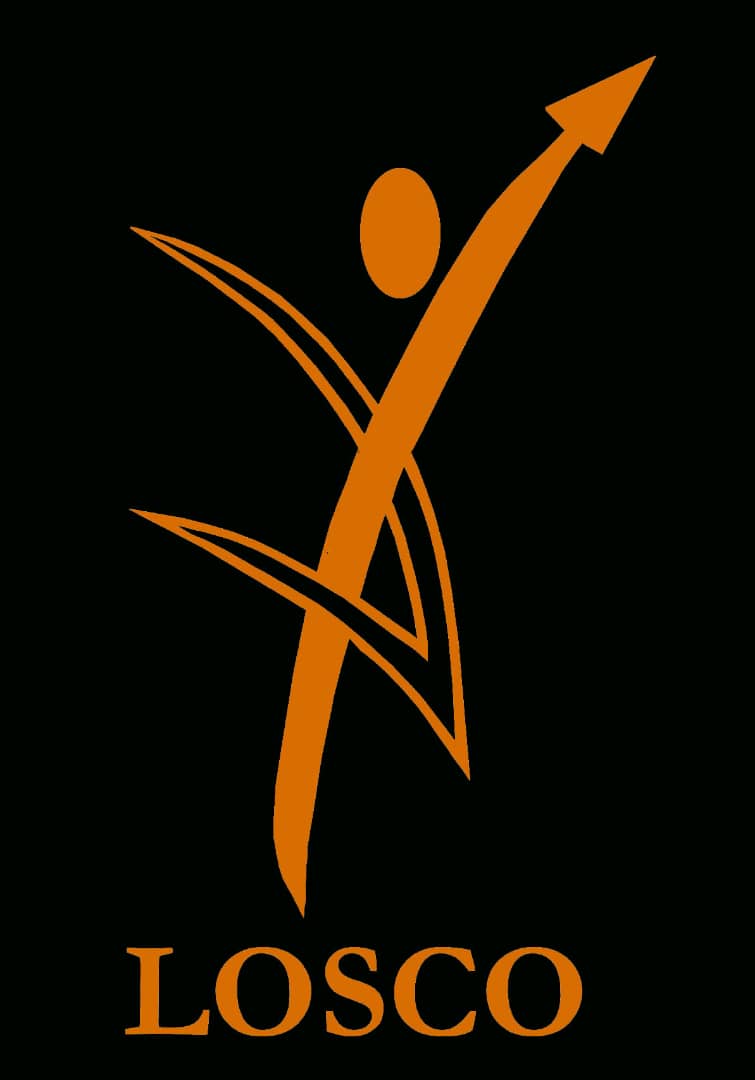ITS POSSBLE TO WIN AGAINST WOMEN'S LAND AND PROPERTY RIGHTS VIOLATIONS IN KIGEZI
LOSCO a Human Rights Advocacy Organisation coordinating the Kigezi sub region has since 2019 been involved in Policy Advocacy and Social accountability and governance to deconstruct certain social norms, values in the gender aspect, and has played a big role in community empowerment and capacity building on Women Rights, laws and policies handling a wide range of social justice issues, women land ownership, gender-based violence which continue to constitute serious social welfare issues, women land rights and social equity issues that affect millions of women and girls in sub – Saharan Africa and women’s land rights are a fundamental human right. They are foundational to gender equality, power dynamics, dignity, household decision-making, and economic freedom. Strong land rights help women break the cycle of poverty and improve not only their own lives, but those of their families and whole communities. The benefits of women’s land rights multiply in crucial ways both at home through their investment in children’s education, health and wellbeing, and Kigezi faces violent cases including deaths related to women land ownership due to limited knowledge on the legal provisions especially the Succession Act, Cap 162 – to address the gaps in the current Act including providing for gender equality in matters of succession in accordance with articles 21 and 33 of the Constitution.
The Campaign for Stand4Herland started in 2021 and Local Sustainable Communities Organisation (LOSCO) a not-for- profit Non- Governmental Organisation that was initiated by a group of Human Rights Defenders, Social Workers, Women Leaders, and Local Community Development Workers to bring about practical inclusive development through promoting inclusive policies and practices; a legally registered Non-governmental organisation with a mandate “To facilitate stable and sustainable community development” in the whole country with her Offices in Kabale Municipality – Kigezi Sub Region represented at the strategic planning meeting and has since led the coordination in the region and recently joined by KWID and has been a very present force in the formulation journey of Stand4Herland Campaign from the start when the joint strategy was developed for the five years campaign journey having been a member of the National Land Coalition that was originally National Engagement Strategy which is a member of the International Land Coalition.
LOSCO has been progressively building capacity of other stakeholders since many women face barriers to Social Justice through Press briefs, Policy dialogues and workshops, with boundary stakeholders and has been a very present force in the formulation journey of Stand4Herland Campaign from the start where the joint strategy was developed for the five years campaign journey having been a member of the National Land Coalition that was originally National Engagement Strategy which is a member of the International Land Coalition.
LOSCO held a dialogue in the district to advance the Stand for Her Land campaign (S4HL) which is a global advocacy campaign to strengthen the land rights of millions of women through collective advocacy that aims to close the implementation gap between law and practice especially; will making, (how it is made and who makes it), addressing letters of administration and property ownership for women in partnership with Uganda Community Based Association for Women and Children’s Welfare (UCOBAC) and Stand for Her Land Campaign (S4HL). S4HL is an inclusive, collaborative effort among a diverse group of allies including representatives of civil society, development organizations, women’s rights and empowerment groups, land rights advocates, Land mapping and technical specialists all over the world. Advocacy for women land and inheritance rights is an investment in the sustainable development of rural areas, poverty reduction, gender equality, and overall community well-being. LOSCO in Partnership with UCOBAC is currently coordinating the Stand For Her Land Campaign in Uganda under a 5 year project funded by BMZ and led by Landesa and LOSCO is taking the lead in the Campaign in Kigezi Sub region advancing the plight of women through Land Rights advocacy, Legal redress, policy reviews and capacity building having been and is an active member of the National Land Platform involved in the review of the National Land Policy and is a strong member of UCOBAC representing Western Uganda being a part of all the land related discussions in the region.
Article 21 of the constitution of the Republic of Uganda prohibits gender discrimination generally and enshrines the principle of equality before the law, regardless of sex, race, color, ethnicity, tribe religion political belief, social or economic standing.
Article 26(1) is to the effect that every person has a right to own property and this article is about protection from deprivation of property.
Article 31 provides for equal rights between men and women during marriage and divorce.
Article 33 pertains specifically to the rights of women and requires as follows;
- a) The government must provide opportunities to enhance the welfare of women and enable them reach their full potential.
- b) Women have rights equal to men in areas including political, economic and social activities.
- c) Laws, customs, traditions and cultures that are “against the dignity of women” are prohibited by the constitution.
Section 15 of the Judicature Act permits the courts to apply customary law and allows any person to benefit from a custom unless the custom has been declared to be repugnant to natural justice, equity and good conscience, and not compatible with any written law.
Such customs and practices must pass the “Repugnancy test” before being applied or relied upon.
Repugnant meaning something characterized by contradictions and irreconcilability.
Incompatible meaning such a custom must not be clashing, conflicting, disagreeing or inconsistent with any written law of the land.
LOSCO has established relationship contacts with local structures as Uganda Police, Uganda Association of Women Lawyers (FIDA Uganda). NPOs. LOSCO also worked with Members of Parliament, Uganda Law Society (ULS), and Opinion leaders through this dialogue.
It was a Half-day policy review dialogue with only 30 participants– (Males 16 and Females 14) with age range of 18-34 – 15, 35-59 – 12 and 60+ 03 taking form of plenary and dialogue where four panelists, twenty one leaders and five media persons were in one room.
The Overall Goal of this project was to promote women’s land inheritance rights and property ownership through legal and policy review, the exchange of experiences and good practices among the boundary stakeholders in Kabale District.
- To build capacity of state and non-state institutions in Land and inheritance rights for Women and Property ownership theory and methodology through knowledge sharing and innovations and propose Key policy recommendations, directions and possible solutions to address policy implementation gaps in Kigezi.
- Provoke discourse and encourage dialogue around policy and practice and shape opinions to amplify grassroots women’s voices, lived experiences and shared priorities promote women’s land and inheritance rights critical to the development and growth.
In Partnership with UCOBAC, LOSCO came in with an effort where a dialogue was held involving the Duty Bearers, target stakeholders ranging from and inclusive of leaders from the District Local Governments who are the direct service providers, women and young girls, men, police, politicians, representatives from Religious leaders, UHRC, CSOs members, journalists, Community Leaders to address the issue of WOMEN LAND, INHERITANCE RIGHTS AND PROPERTY OWNERSHIP IN KABALE DISTRICT – KIGEZI SUB REGION.
Outcome 1: Capacity built among the Rights Holders and Duty Bearers (State an Non state actors) on Land, marriage and inheritance rights for women and property ownership theory and methodology
Outcome 2: Collaboration and continuous engagement between State and non-state actors on land rights, and women property ownership to amplify grassroots women’s voices, lived experiences and shared priorities promote women’s land and inheritance rights critical to the development and growth..
Overview of WOMEN LAND, INHERITANCE RIGHTS AND PROPERTY OWNERSHIP IN KABALE DISTRICT – KIGEZI
There are very many cases in Kabale where fathers give women land even in writing and they are taken away by the siblings that women are not supposed to possess land and yet there is nowhere the constitution says ladies should not inherit land. Findings revealed that the number of land related complaints particularly reported by women at Kabale Central Police Station and the Office of the Kabale Resident District Commissioner has steadily increased to an average of 21 per month. The conflicts were breaking families with children also affected, since the warring parties spend most of their time in courts of law and at police registering 8 to 10 land cases every week, also revealing that majority of the cases are reported by women. This is not an easy thing because some women believe they are not supposed to get land from their families attributed to limited awareness of the public on laws governing land ownership and management.
LOSCO has embarked on sensitizing the general public, office bearers and land rights activists, among others about the women’s land inheritance rights and property ownership, as a way of curbing the increasing domestic violence cases in the country.
It was established that most of the land rights violations against women, were a result of rigid cultural norms and practices. The discussion focused on Kigezi region where the customs limit ownership of land by women. For instance the married women do not usually get equal share of land with their brothers after their parents’ death, in case there was no written will by the deceased. This is because, in the Kigezi region, women are no longer counted as part of their fathers’ family, after getting married. They are rather attached to the family of the husband. Only the family house and sometimes a small portion of land known as “ekyemiziga” (Consolatory piece) is reserved for them, in case they divorce or separate from their husbands. The rest of the property is shared among the sons of the deceased.
HOW WOMEN ACQUIRE LAND IN KIGEZI SUB REGION.
- Upon marriage.
This is under the marriage Act and after the marriage vows.
The land Act protects such as family land under section 39A and no person shall sell, exchange, transfer, mortgage, lease, enter into any contract for sale or pledge or give away any family land without any prior written consent of a spouse.
- Under polygamous marriage. Very many women are not accepted; they just form families and have children. These women are not protected under any law and are just cohabiting. The first wife is given a house, land, – Every Child to the Mother – the more the children the more the fragmentation and the less the Land.
- Inheritance from parents/by a will. (okubaganisa). boys are given land to build on and the land surrounding the house is for the girls/women in case they fail in marriage. Even when they are making wills.
- By purchase. Originally they would only be witnesses to the purchase and never co purchasers. When there is a conflict, the land would present the agreement and the wife would just be a witness and not owner.
- Okutekyesa/ ekyamahega
- Okusheba/ gift inter vivos by parents and sometimes relatives
- Ekyengaragazi
- Ekyemiziga (Consolatory piece)
Once we work together this fight is winnable and mostly because of corruption. If we are to help these women, we should do away with corruption. There is need to extend our jurisdiction and reach the farthest and help the neediest.
The challenge identified was language barriers faced by the Judicial officers while presiding over land cases. “For example one of the ways a woman can own land in Kigezi, is receiving a portion of her deceased father’s land called ‘Ekyemiziga” literally translated as “Consolatory land’, ” At times it is hard for the judicial officers to understand the source of land conflicts, since such kind of land acquisition does not usually involve documentary evidence, and there are limited means of interpreting them in accordance to the laws governing land management.
The dialogue also established that there was an increase in the number of widows facing land grabbing and evictions by their in-laws especially when their husbands die without making wills. Most of the affected widows were those cohabiting.
There was a Man who sold land without the wife’s consent and have been charged with criminal trespass because of getting to the sold land to fetch firewood. A man was also arrested because of using his land.
Emphasize what is learnt and it would be bad if someone’s land is taken and different Offices are at conflict.
Gaps identified
Additionally Lack of awareness and Ignorance. Lack of knowledge and information for women’s rights to land ownership land laws and the effects of violating land rights. Many women are unaware of their rights regarding land ownership and inheritance thus leading to their exploitation and marginalization. This lack of awareness often stems from limited education and outreach programs.
- Poor economic status and lack of enough finances. Due to the fact that most women live in rural areas thus land is essential for them to carry out their economic and agricultural activities for sustaining their livelihood, they lack enough finances to clearing the ,legal fees for addressing and protecting their land issues.
- The Uganda’s legal frame works on land ownership has also limited the ownership for women. Uganda has made strides in enacting laws to protect women’s land rights thus implementation remains a challenge. The Land Act of 1998 and its subsequent amendments aim to promote gender equality in land ownership, but enforcement at the local level is inconsistent.
- Land grabbing is another issues that was identified limiting land ownership. Rapid urbanisation and commercial interests contribute to land grabbing thus disproportionately affecting women who may lack the resources or legal support to defend their land rights against powerful interests.
- Polygamy and divorce. In polygamous marriages, disputes over land rights can arise upon divorce for example the death of the husband, women in these situations often face challenges asserting their claims against competing wives and male relatives.
- Discriminatory practices in rural areas. Discrimination against women in accessing land credit, loans and other financial resources exacerbates their vulnerability to land related injustices. This discrimination is sometimes perpetuated by financial institutions and even within families.
- Lack of documentation. Women’s land rights may not be formally documented thus making it easier for others to contest or disregard for claims.
- Limited participation in decision making. Women may have limited participation in decision making processes related to land governance, leading to policies that do not adequately address their needs.
- These customs are not written.
- They are unknown to the stake holders especially those 30 years and below.
- Little or no respect is attached to these customs presently.
- Enforcement of them is nearly impossible.
Lessons learned:
- Actors are acting altraviares beyond their powers.
- Legal Marriages are key in this; there is a challenge of cohabiting and this can take a lot of time…
- One of the biggest Challenges is that LCIs don’t understand their roles in the Land and Family Matters. LCII Courts are not aware of that is all about Policy and Laws.
- The Area Land Committees have no knowledge of the Land Act, Property rights or even Inheritance rights and they are acting with Authority of Ignorance
- There is an urgent need to sensitise these officers to minimize conflict at village level.
- Challenges with patriarchy norms tend to give preference to boy child calling the girl child prostitutes.
- Capacity gaps on both the citizens and duty bearers for instance ALCs do not have a budget and this implies that if there is an issue the facilitation is handled by the victim.
- Section 38A Land Act cap 227 gives a clear definition of family land
- Jurisdiction of courts to handle land matters LC 2, LC 3, Appeal to Chief Magistrate
- Grade 1 value not more 20m of the property in conflict
- Chief Magistrate 50m of the property in conflict
- High Court more than 50m of the property in conflict
- LCs only land under customary tenure
Recommendations
- Partners must continue the awareness because the information is very necessary. The matters related to land should be handled jealously. Section 39 of the Land Act should be very well explained to women and be enforced every day. This includes conducting awareness campaigns and provides education on women’s land rights and legal mechanisms for claiming them.
- Be taught how to make will and not only that but also what happens and the executors of the will and get letters of prebators
- Stakeholders and the general public to be sensitized about these customs.
- Encourage putting in writing or making written agreements of the gifts i.e. gifts inter vivos, distribution agreements, making wills.
- Encourage executors to apply for probate/ letters of administration
- All Government established structures should come with the budget.
- Local laws and policy interpretation to local languages
- Limited capacity for women should be boosted through capacity building for rural organisations of land rights and laws.
- Establish gender responsive and equitable policies on land and property rights.
- Need to implement legal land reforms. Amend discriminatory laws and policies to ensure gender equality in land ownership and inheritance rights.
- There should be need for capacity building programs. This includes building the capacity of women’s organisations and community leaders to advocate for women’s land rights and provide support to women in claiming their land rights.
- Provision of legal Aid services. Provide fee legal aid services to help women assert their land rights.
- Need to implement community sensitization. Conduct community sensitization programs to challenge discriminatory norms and promote gender equality in land rights. Engage more conversations with the local communities.
- Implement land titling programs. Land titling programs contribute to prioritize women’s land rights and ensure their inclusion in formal land registries.
- To improve access to credit and resources. Improve women’s access to credit, agricultural inputs and extension services to enhance their productivity and land tenure security.
- To encourage participatory land use planning. Ensure women’s participation in land use planning processes to address their specific needs and priorities.
- Need to strengthen legal frameworks. Strengthen legal frameworks and institutions responsible for protecting women’s land rights and ensuring their enforcement.
- There should be need to promote equity and equality for women in Uganda. Therefore there should be legal provision and promotion of equality and equity for both genders in land ownership and land rights.
Media Links
https://thesourceug.com/current-affairs/gender-based-land-conflicts-surge-in-kabale/
NEXT ARTICLE
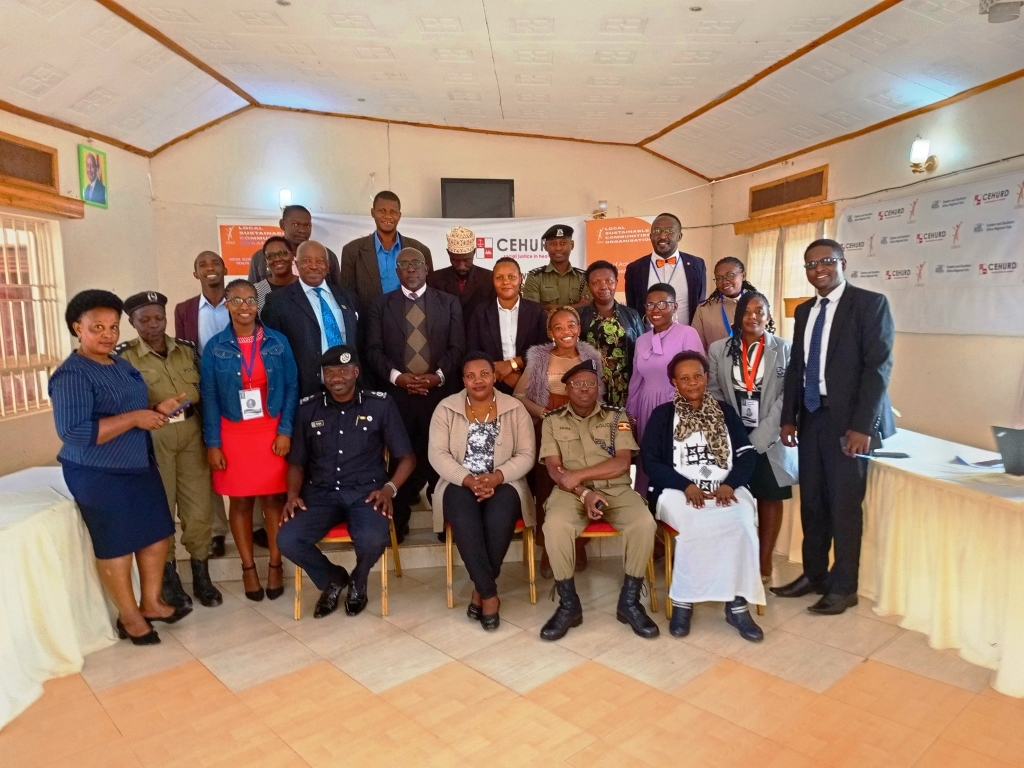 Social justice refers to the fair and equitable distribution of resources, opportunities, and rights within society, with the goal of addressing and rectifying systemic inequalities and injustices. Here are some key aspects of social justice:
Social justice refers to the fair and equitable distribution of resources, opportunities, and rights within society, with the goal of addressing and rectifying systemic inequalities and injustices. Here are some key aspects of social justice:
1. Equality and Equity: Social justice aims to ensure that everyone has equal access to resources, opportunities, and rights, regardless of factors such as race, gender, socio-economic status, or other characteristics. It recognizes that achieving equality may require addressing historical and systemic barriers through equitable policies and practices.
2. Human Rights: Social justice is closely linked to the protection and promotion of human rights for all individuals. This includes rights such as the right to education, healthcare, housing, employment, and freedom from discrimination and oppression.
3. Intersectionality: Social justice acknowledges that individuals may face intersecting forms of discrimination and marginalization based on multiple aspects of their identity, such as race, gender, sexuality, disability, and class. Intersectional approaches to social justice recognize and address these complex and overlapping systems of oppression.
4. Inclusion and Diversity: Social justice promotes inclusivity and celebrates diversity within society. It seeks to create environments where all individuals feel valued, respected, and empowered to participate fully in social, economic, and political life, regardless of their background or identity.
5. Empowerment and Advocacy: Social justice involves empowering marginalized and oppressed communities to advocate for their rights and interests. This may include community organizing, grassroots activism, and policy advocacy to challenge unjust systems and institutions and promote positive social change.
6. Restorative Justice: Social justice includes efforts to address past and ongoing injustices through restorative measures, such as reparations, truth and reconciliation processes, and efforts to redress historical injustices faced by marginalized groups.
7. Systemic Change: Social justice aims to transform social, economic, and political structures to create more just and equitable societies. This may involve challenging and dismantling systems of oppression and privilege, and advocating for policies and practices that promote fairness, inclusivity, and solidarity.
Overall, social justice is a fundamental principle that guides efforts to create a more just, equitable, and compassionate world, where everyone has the opportunity to thrive and live with dignity and respect.
NEXT ARTICLE
KNOW YOUR BASIC HUMAN RIGHTS – ROTARACTORS EMPOWERED
WHO IS A YOUTH?
A young person especially: a young Male/ Female between adolescence and maturity
Uganda’s National Youth Policy defines youth as those aged between 18 and 30. In contrast, the East African Community (EAC) defines youth as those between 15 and 35 years while the United Nation’s definition is 15-24 years.
Participation in the protection & promotion activities can help youths become better informed about current events.
Human Rights are natural entitlements that accrue to everyone by virtue of being Human.
A human Being is a Man, Woman, Child with a sense of Reason.
30 Articles in UDHR and the Constitution of ROU 1995 (as Amended)
Human Rights go Hand in Hand with Human Responsibilities but ignorance of one affects the role of the other.
It stresses that developing capacities for participation is an important result in itself.
The youth can preserve human rights for generations and implant the importance and value of fundamental rights and freedoms in people’s hearts.
As youth, we should convey the message of human rights to society.
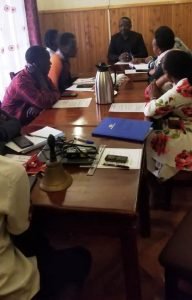 The UDHR is adopted in 1948 December 10th a milestone document, which proclaims the inalienable rights that everyone is entitled to as a human being – regardless of race, colour, religion, sex, language, political or other opinion, national or social origin, property, birth or other status. Available in more than 500 languages, it is the most translated document in the world. In Uganda, it was 9th December 1998 that Declared HRD Day
The UDHR is adopted in 1948 December 10th a milestone document, which proclaims the inalienable rights that everyone is entitled to as a human being – regardless of race, colour, religion, sex, language, political or other opinion, national or social origin, property, birth or other status. Available in more than 500 languages, it is the most translated document in the world. In Uganda, it was 9th December 1998 that Declared HRD Day
It is absolutely clear that we need to regain the universality of human rights, the indivisibility of human rights, and we need to find a new energy that motivates young people around the world.” Volker Türk, UN High Commissioner for Human Rights
The adoption of the Universal Declaration of Human Rights in 1948, human rights have become more recognised and more guaranteed across the globe. It has since served as the foundation for an expanding system of human rights protection that today focuses also on vulnerable groups such as persons with disabilities, indigenous peoples and migrants.
CATEGORIES of RIGHTS
First Generation Rights – Civic – Political – Liberties (Checking Excesses of the State) -Vote– Financial Implications
Second Generation Rights – Social Economic and Cultural Rights – Welfare (Progressive in Nature) Financial Implications
Group Rights – Groups for different categories (Clean Environment, Clean Water)
Pursuant to Human Rights Council Resolution 35/14, The documented discrimination and some of the challenges for young people in accessing civil, political, social, economic and cultural rights.
In its resolution 1983/46, adopted at its 39th session, the Commission called upon states to take appropriate action for the exercise by youth of all their human rights-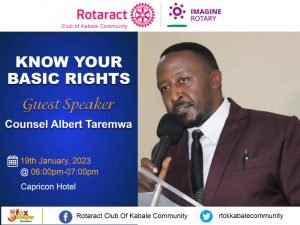
- the right to life and liberty,
- freedom from slavery and torture,
- freedom of opinion and expression,
- the right to work and
- the right to education,
Everyone is entitled to these rights, without discrimination.
ARTICLE 38 CIVIC RIGHTS AND ACTIVITIES
(1) Every Uganda citizen has the right to participate in the affairs of government, individually or through his or her representatives in accordance with law.
RIGHTS – Chapter 4 (Articles 20-50)
- Rights to Life – Article 22
- Torture (Inflicting severe pain) -Article 24
- Own property – Article – 26
- Privacy – Article 27
- Freedom of Expression – Article 29
- Education – Article 30
- Marriage – Article 51
Characteristics of human rights
- Human rights are inalienable. This means that you cannot lose them, because they are linked to the very fact of human existence.
- They are inherent to all human beings.
- Human rights are indivisible
- Interdependent and interrelated
- Human rights are universal,
Article 44 – Never limited Rights
- Torture (Inflicting severe pain) (Article 24)
- Fair hearing
- Right to an Order of Habeas corpus
- Right to freedom from Slavery and Servitude
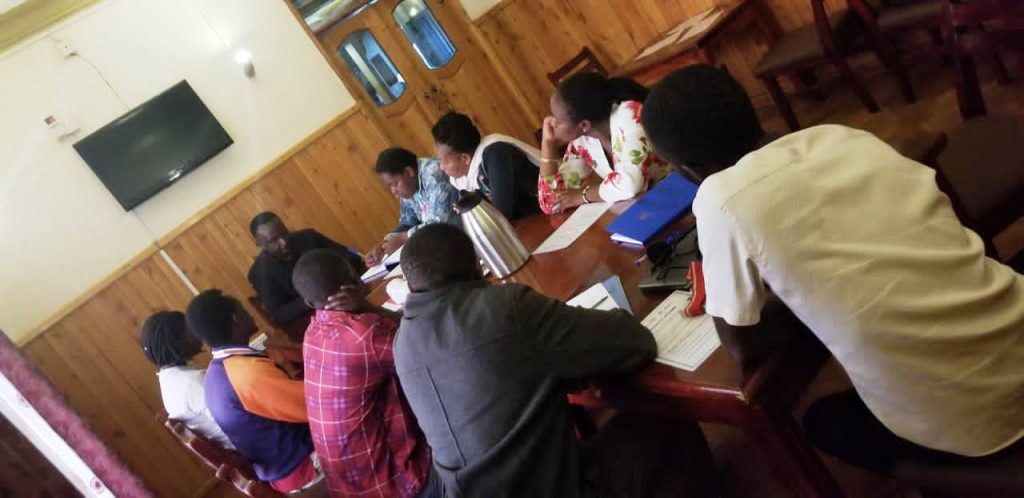 However, the promise of the UDHR, of dignity and equality in rights, has been under a sustained assault in recent years. As the world faces challenges new and ongoing – pandemics, conflicts, exploding inequalities, morally bankrupt global financial system, racism, climate change – the values, and rights enshrined in the UDHR provide guideposts for our collective actions that do not leave anyone behind.
However, the promise of the UDHR, of dignity and equality in rights, has been under a sustained assault in recent years. As the world faces challenges new and ongoing – pandemics, conflicts, exploding inequalities, morally bankrupt global financial system, racism, climate change – the values, and rights enshrined in the UDHR provide guideposts for our collective actions that do not leave anyone behind.
NEXT
The Regional HRD FP @ConsultAlbert Witnesses & Blesses the Handing over of a New Vehicle to @UHRC_UGANDA Kabale Office as a Human Rights Stakeholder Coordinating HRDs in the Region with @CommunitiesOrg and @NCHRD-U. Partnership is the only way to make Promotion and Protection of HR a success. “For to be free is not merely to cast off one’s chains, but to live in a way that respects and enhances the freedom of others.” “No one is born hating another person because of the colour of his skin, or his background, or his religion. Nelson Mandela
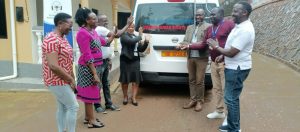
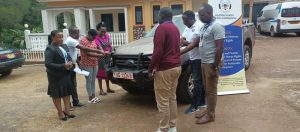
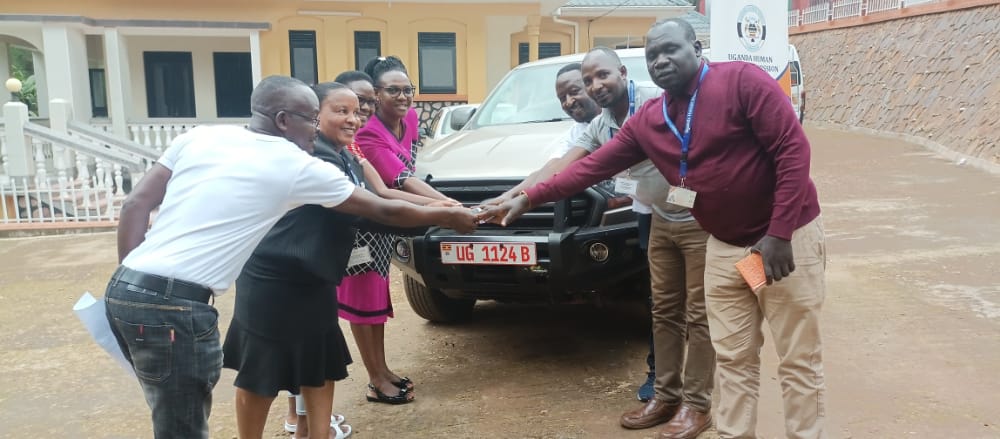
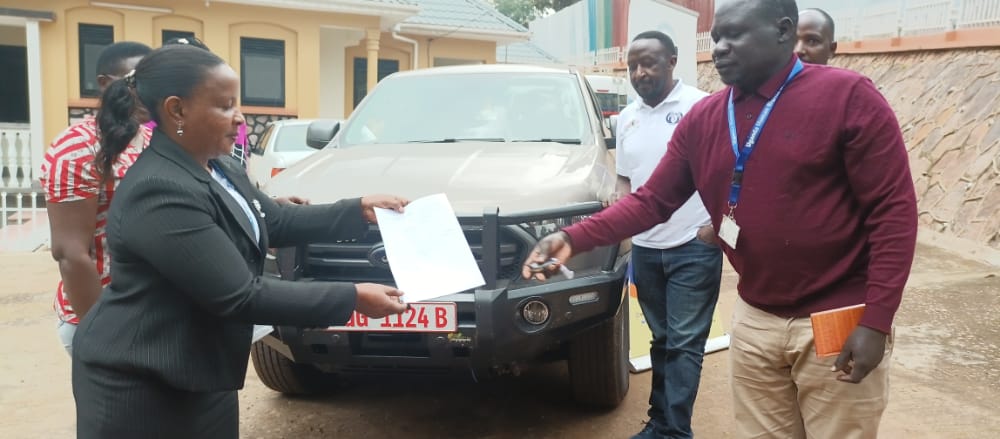
NEXT
DIGNITY AND EQUALITY IN RIGHTS HAS BEEN UNDER A SUSTAINED ASSAULT IN RECENT YEARS
Human Rights Day is observed every year on 10 December — the day the United Nations General Assembly adopted, in 1948, the Universal Declaration of Human Rights (UDHR). The UDHR is a milestone document, which proclaims the inalienable rights that everyone is entitled to as a human being – regardless of race, colour, religion, sex, language, political or other opinion, national or social origin, property, birth or other status. Available in more than 500 languages, it is the most translated document in the world.
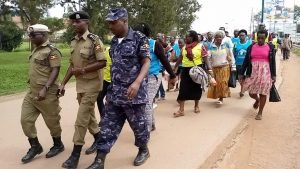 2022 Theme: Dignity, Freedom, and Justice for All
2022 Theme: Dignity, Freedom, and Justice for All
It is absolutely clear that we need to regain the universality of human rights, the indivisibility of human rights, and we need to find a new energy that motivates young people around the world.” Volker Türk, UN High Commissioner for Human Rights
The 75th anniversary of the Universal Declaration of Human Rights will be celebrated on 10 December 2023. Ahead of this milestone, starting on this year’s Human Rights Day on 10 December 2022, we will launch a year-long campaign to showcase the UDHR by focusing on its legacy, relevance and activism.
In the decades since the adoption of the Universal Declaration of Human Rights in 1948, human rights have become more recognised and more guaranteed across the globe. It has since served as the foundation for an expanding system of human rights protection that today focuses also on vulnerable groups such as persons with disabilities, indigenous peoples and migrants.
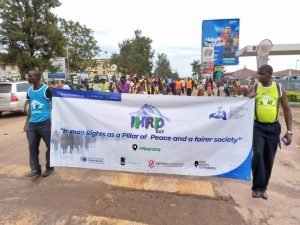 However, the promise of the UDHR, of dignity and equality in rights, has been under a sustained assault in recent years. As the world faces challenges new and ongoing – pandemics, conflicts, exploding inequalities, morally bankrupt global financial system, racism, climate change – the values, and rights enshrined in the UDHR provide guideposts for our collective actions that do not leave anyone behind.
However, the promise of the UDHR, of dignity and equality in rights, has been under a sustained assault in recent years. As the world faces challenges new and ongoing – pandemics, conflicts, exploding inequalities, morally bankrupt global financial system, racism, climate change – the values, and rights enshrined in the UDHR provide guideposts for our collective actions that do not leave anyone behind.
Achieving gender equality is the unfinished human rights struggle of this century. All girls & women must be permitted to exercise their full human rights in a safe environment without fear of violence, prosecution or persecution.
The year-long campaign seeks to shift the needle of understanding and action towards greater knowledge of the universality of the UDHR and the activism associated with it.
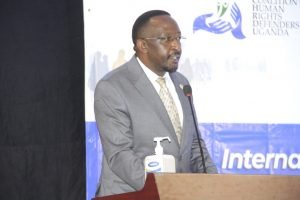 Much as this has been the aim of both State and non-state actors, we still witness the acts of Aggressive abductions, Surveillance on the investigative journalists, limitation on Access to information, Limited capacity of grassroots HRDs, Intimidation and Harassment against the HRDs especially working in areas of Environment, Extractives and Media.
Much as this has been the aim of both State and non-state actors, we still witness the acts of Aggressive abductions, Surveillance on the investigative journalists, limitation on Access to information, Limited capacity of grassroots HRDs, Intimidation and Harassment against the HRDs especially working in areas of Environment, Extractives and Media.
The general overview of the Human Rights situation in Uganda has been more challenging with less victories from the great efforts invested, “Abductions in Uganda are being conducted by vehicles (numberless vehicles) called drones. Even Traffic cannot identify them. No institution has owned them – Police & Army are denying knowledge of the numberless drones.”, HRDs face harassment, intimidation, interference, and persecution in the course of their work noting that the Government has continued to apply laws that seek to restrict their work and silence them thus calling for more advocacy and Collaborative advancement between stakeholders at all levels thus ensuring that no one is left behind.
LOSCO with other Human Rights Defenders under their umbrella the National Coalition of Human Rights Defenders Uganda – NCHRD-U have asked the government to expedite the bill that protects them.
The Human Rights Defenders Protection Bill 2020 was only read once during the 10th Parliament and the bill has since remained on the shelves. This came up during the 24th Human Rights Defenders Day Celebrations in Mbarara City under the theme “Human Rights as a Pillar of Peace and a Fairer Society”. Legitimate work of HRDs in Uganda has made advances with various actors and activities which fulfill and advance the purposes and principles of the Universality of rights, we are often confused for opposition but its clear CSOs derive there mandate from the constitution
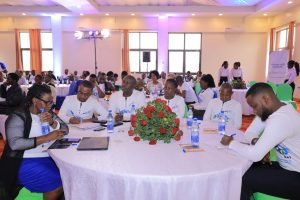 Much as several laws support human rights defenders like Article 38, which speaks about our activities and obligations, HRDs, want a specific law that recognizes, legitimizes, and protects their works as human rights Defenders. HRDs were happy when the Bill that protects their work made it to the floor of the 10th parliament but were saddened that it was shelved. We need an economy that invests in human rights and works for everyone. We need to renew the social contract between Governments and their people and within societies, so as to rebuild trust and embrace a shared and comprehensive vision of human rights on the road to a just and sustainable development.
Much as several laws support human rights defenders like Article 38, which speaks about our activities and obligations, HRDs, want a specific law that recognizes, legitimizes, and protects their works as human rights Defenders. HRDs were happy when the Bill that protects their work made it to the floor of the 10th parliament but were saddened that it was shelved. We need an economy that invests in human rights and works for everyone. We need to renew the social contract between Governments and their people and within societies, so as to rebuild trust and embrace a shared and comprehensive vision of human rights on the road to a just and sustainable development.
Human rights defenders need to remain devoted to pushing for economic, social, cultural, civil, political, and other rights in a collective way for individuals and society. The threats directed at human rights defenders undermine the principles of peace and democracy.
The 2030 Agenda for sustainable development explicitly recognizes it is grounded in UDHR and has to be implemented in a manner that realizes human rights.
The UDHR has inspired many struggles for stronger human rights protection and helped them to be more recognized. Whenever and wherever humanity’s values are abandoned, we all are at greater risk. The solutions to today’s greatest crises are rooted in human rights. Rights violations reverberate across borders and across generations. These can be, must be, and collectively overcome. We need to stand up for our rights and those of others. We all have a role to play.
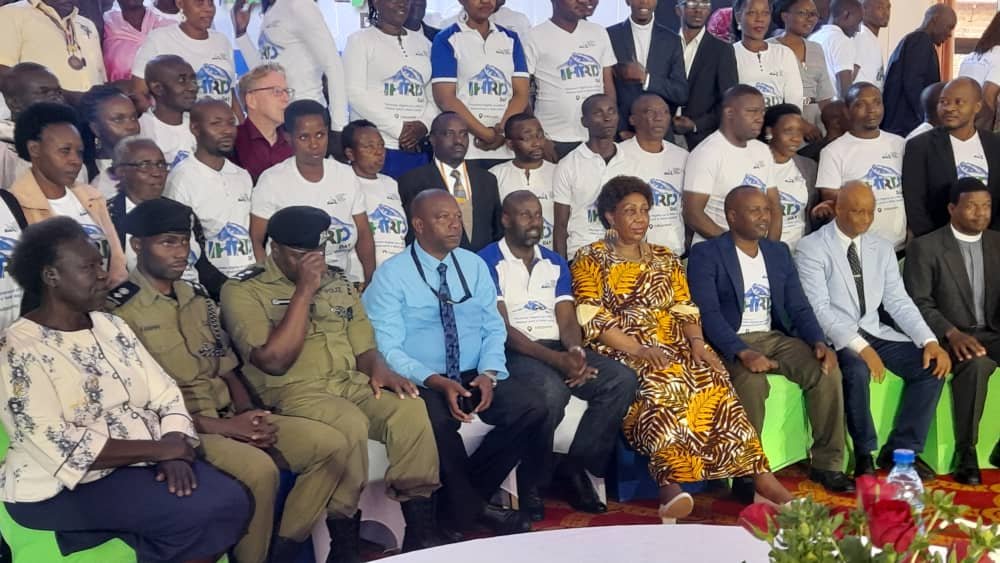
NEXT
MEETING WITH THE TEACHERS OF KABALE MUNICIPAL COUNCIL IN PARTNERSHIP WITH UHRC ON HUMAN RIGHTS
Understanding the Laws that govern Human Rights and Duties of Stakeholders
THE SUPREME LAW
The Constitution is the supreme law of Uganda. The present constitution was adopted on 8 October 1995.
It is Uganda’s fourth constitution since the country’s independence from Britain in 1962.
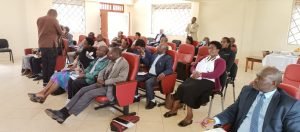
The first Constitution was adopted in 1962 only to be replaced 4 years later in 1966.
Article 38 of the Constitution mandates the Citizens to play a role in the governance of their country.
Article 39 Right to a clean and healthy environment; Every Ugandan has a right to a clean and healthy environment.
Article 41 (1) of the Uganda Constitution states that “Every citizen has a right to access to information in the possession of the state or any other organ or agency of the state except where the release of the information is likely to prejudice the security or sovereignty of the state or interfere with the right to life.
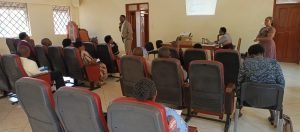
What are Treaties? A treaty is a formal, legally binding written agreement between actors in international law. It is usually made by and between sovereign states, but can include international organizations, individuals, business entities, and other legal persons.
What are Charters? A written Grant by the Sovereign or Legislative power of a Country by which a body such as a city, company, is founded or its rights and privileges defined.
For Defenders of Universal Human Rights; #Environmental Rights, #Women Rights, #Children Rights, #Democratic governance rights, #Refugee rights, #Land Rights,
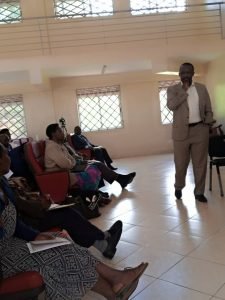 There is need to activate and functionalize the structures in schools from the Student’s Bodies, Teachers, PTA Management and Board when it comes to Disciplinary processes.
There is need to activate and functionalize the structures in schools from the Student’s Bodies, Teachers, PTA Management and Board when it comes to Disciplinary processes.
There is a very big difference between Punishment, Correction and Discipline and therefore the Teachers ought to understand when to apply what in regard to Respecting, Promoting and Protecting Human Rights.
The need to understand the role of Duty bearers and Rights Holders in School Setting is very important in the process of streamlining Human Rights promotion and when it comes to Abuse and Violation o
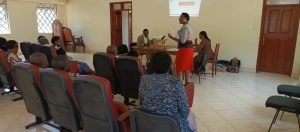
f Human Rights, the knowledge of the State and Non State actors should be clear and the line drawn for better understanding of these concepts.
The concept of Human Rights also must be understood from the aspect of Human Rights Based Approach which brings out the elements of Participation, Accountability, Non Discrimination, Empowerment and the links to Rule of Law which inform a just process of social Justice and local ownership in Development.
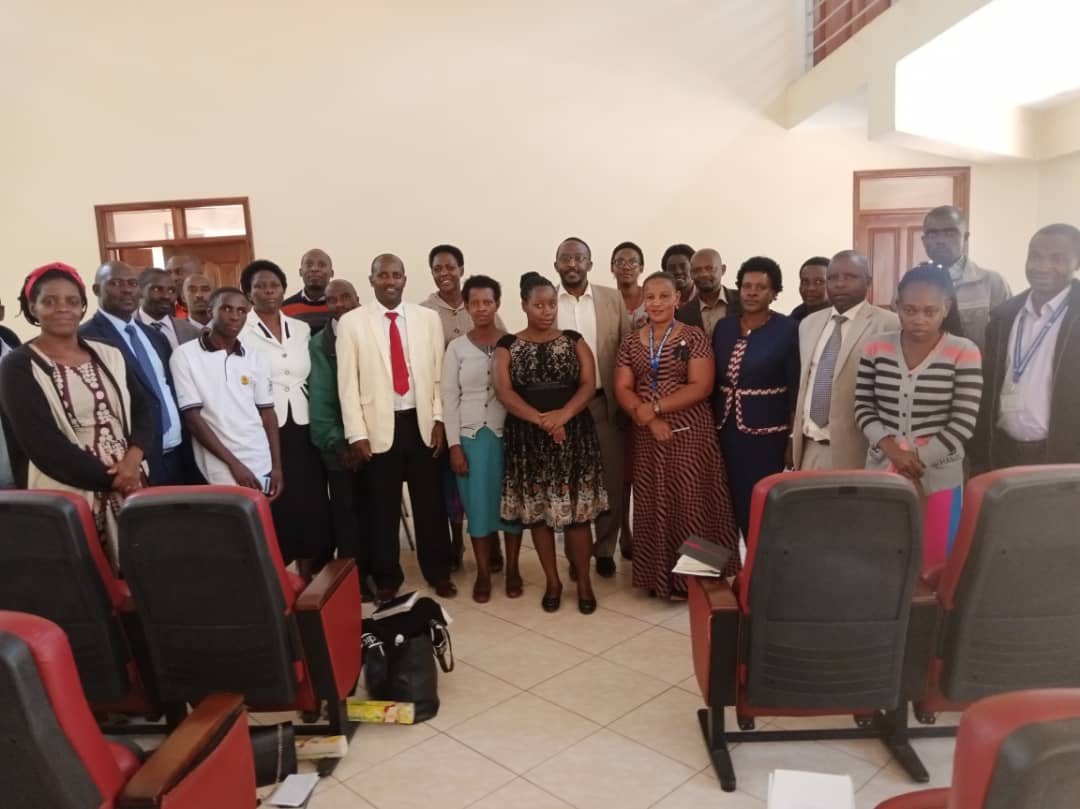
NEXT
HUMAN RIGHTS EDUCATION – ROLE OF THE YOUTH IN PROTECTING AND PROMOTING HUMAN RIGHTS
WHO IS A YOUTH?
The time of life when one is young especially : the period between childhood and maturity. The early period of existence, growth, or development
A young person especially : a young Male/ Female between adolescence and maturity
Uganda’s National Youth Policy defines youth as those aged between 18 and 30. In contrast, the East African Community (EAC) defines youth as those between 15 and 35 years while the United Nation’s definition is 15-24 years.
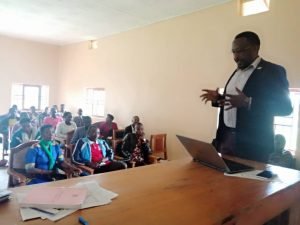 Youth have the creativity, the potential and the capacity to make change happen – for themselves, for their communities, and for the rest of the world. LOSCO works with young people and is committed to accompany them to work together to drive social innovation and change, participate fully in the development of their societies, eradicate poverty and inequality, and foster a culture of peace and Human Rights.
Youth have the creativity, the potential and the capacity to make change happen – for themselves, for their communities, and for the rest of the world. LOSCO works with young people and is committed to accompany them to work together to drive social innovation and change, participate fully in the development of their societies, eradicate poverty and inequality, and foster a culture of peace and Human Rights.
Participation in the protection & promotion activities can help youths become better informed about current events.
Human Rights go Hand in Hand with Human Responsibilities but ignorance of one affects the role of the other.
It stresses that developing capacities for participation is an important result in itself.
The youth can preserve human rights for generations and implant the importance and value of human rights in people’s hearts.
Youth is the link between children and adults. The message of human rights will be conveyed to these two groups by the youth.
As youth, we should convey the message of human rights to society.
Young people face discrimination and obstacles to the enjoyment of their rights by virtue of their age, limiting their potential.
The human rights of youth therefore refers to the full enjoyment of fundamental rights and freedoms by young people.
Promoting these rights entails addressing the specific challenges and barriers faced.
WHAT CHALLENGES AND DISCRIMINATION DO YOUNG PEOPLE FACE?
Pursuant to Human Rights Council Resolution 35/14, The documented discrimination and some of the challenges for young people in accessing civil, political, social, economic and cultural rights are here with Highlighted.
Participation: Youth are under-represented in political institutions, with less than 2% of parliamentarians worldwide aged under 30. Moreover, the age of candidacy for national parliaments, and especially for higher office, is not always aligned with the minimum voting age.
School to work transition: Young people worldwide are three times more likely than adults to be unemployed.
Access to health, including Sexual and Reproductive Health and Rights: In some countries, parental notification is required for young people to access sexual and reproductive health services, such as menstrual goods and services.
Youth in vulnerable situations: Young migrants including asylum seekers and refugees, young people in conflict with the law and youth with disabilities face additional challenges due to their specific situation.
Age is one characteristic that often intersects with, adds to and multiplies discrimination based on other grounds, thus preventing many young people from enjoying equal opportunities and substantive equality.
“As people face more and more Human Rights challenges, in terms of economic, social & environmental factors as well as mental health issues, the potential for simple programmes like community empowerment to improve resilience is really necessary.”
Our communities are stronger when everyone has the opportunity to contribute. Your involvement as Youths can help a community establish relationships through coordination, gain knowledge, and be better prepared to face dynamic Human Rights challenges. 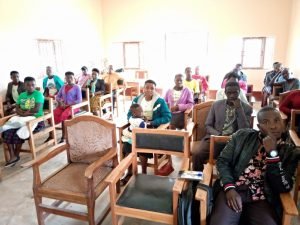
WHAT THEN CAN THE YOUTHS DO TO PROTECT AND PROMOTE HUMAN RIGHTS
In its resolution 1983/46, adopted at its 39th session, the Commission called upon states to take appropriate action for the exercise by youth of all their human rights, including the right to education and the right to work, “with a view to creating conditions for the active participation of young people in the formulation and implementation of programmes or the economic and social development of their countries”. “the need to educate young people in the ideals of peace and mutual understanding, respect for human rights and fundamental freedoms and dedication to the aims of social progress and development.
ARTICLE 38 CIVIC RIGHTS AND ACTIVITIES
(1) Every Uganda citizen has the right to participate in the affairs of government, individually or through his or her representatives in accordance with law.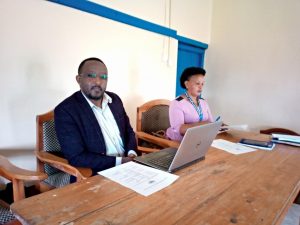
Article 53 Mandates UHRC
CHAPTER 4 – HUMAN RIGHTS AND LIBERTIES
First, the right of youth to appropriate education, training and work. The education youth should receive must not only involve training in the skills necessary for gainful employment through the practice of a trade or profession, but also provide moral and spiritual enlightenment. youth will be able to offer their fullest contribution to society only when they receive proper moral and spiritual education.
Secondly, should be able to participate actively in implementing projects dedicated to improving living conditions, upraising the quality of human life, and developing the self-reliance of their communities. youth could be encouraged to promote the spread of literacy; to participate in projects aimed at improving health care and medical treatment; to contribute to community service programmes of a humanitarian nature.
Thirdly; Youth need to contribute to the enjoyment of human rights and the establishment of world peace, At the same time, to achieve this full enjoyment of human rights youth must also be at the forefront of efforts to promote social and economic progress and justice.
Fourthly; Speak up for what you care about. We all have something that we care deeply about, whether because of an experience we underwent, an encounter we’ve witnessed, or a story spoken by someone close to us. Advocacy has a huge impact in communities everywhere.
One brave voice is enough to open up a channel for others to share their experiences and support human rights.
LASTLY; Stand up against discrimination.
Discrimination has a way of creeping up in places we never imagined encountering it. When we have each other as support, we are more empowered against injustices in the workplace or in a classroom.
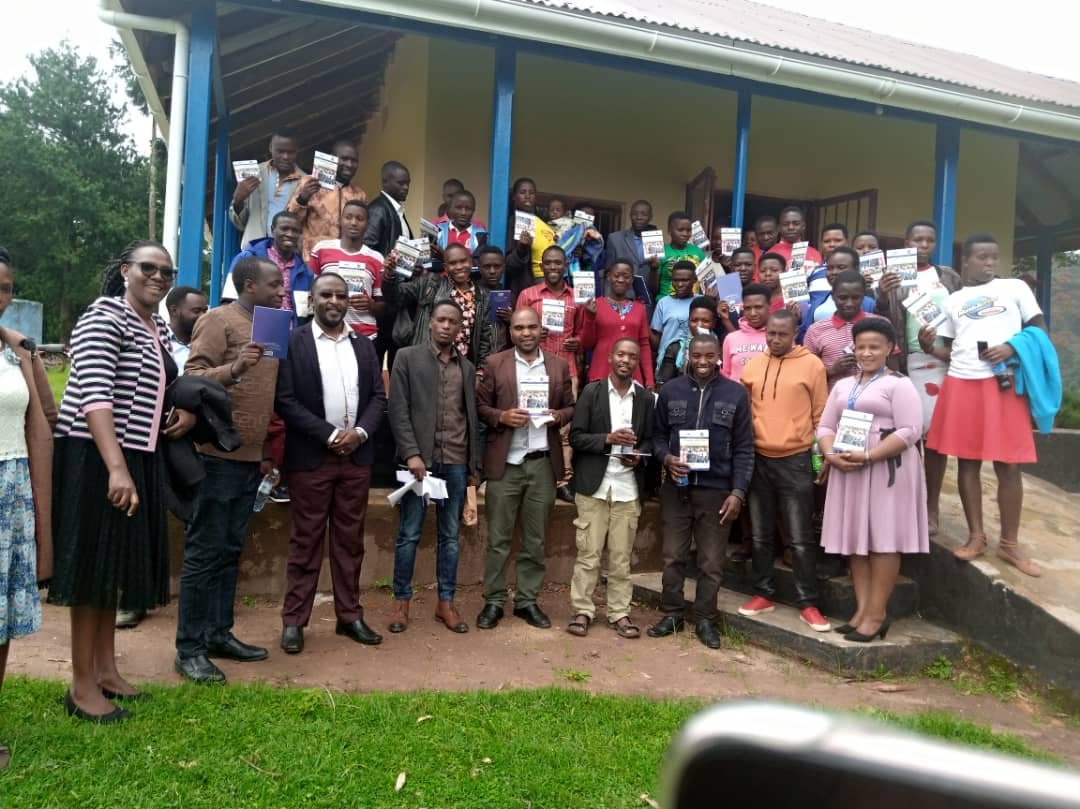 Acting together, we’re powerful enough to pave a new path to equality and fairness.
Acting together, we’re powerful enough to pave a new path to equality and fairness.
NEXT ARTICLE
UPR ’22 STAKEHOLDERS CONFERENCE
Theme: Towards a Collective and Coordinated Action in Implementing the UPR Recommendations
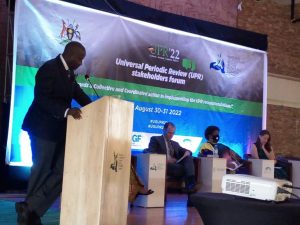
The Universal Periodic Review (UPR) is a process through which all UN Member States are provided the opportunity to review the human rights records of all other Member States.
As one of the main features of the Council, the UPR is designed to ensure equal treatment for every country when their human rights situations are assessed. The ultimate aim of this mechanism is to improve the human rights situation in all countries and address human rights violations wherever they occur. Currently, no other universal mechanism of this kind exists.
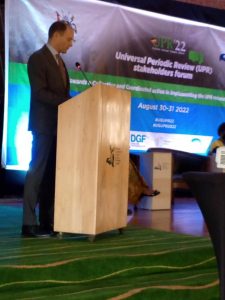 The crucial role of Civil Society in the Universal Periodic Review (UPR) is expressly recognised by the UN, UN Member States and in the founding resolution of the mechanism. Since the UPR was Introduced in 2007 Civil Society Organisations (CSOs), and Human Rights Defenders (HRDs) have constantly engaged in the Process, in order to effect positive change for Human rights across the world. The role of Civil Society has proven to be vital for the success of the UPR.
The crucial role of Civil Society in the Universal Periodic Review (UPR) is expressly recognised by the UN, UN Member States and in the founding resolution of the mechanism. Since the UPR was Introduced in 2007 Civil Society Organisations (CSOs), and Human Rights Defenders (HRDs) have constantly engaged in the Process, in order to effect positive change for Human rights across the world. The role of Civil Society has proven to be vital for the success of the UPR.
Uganda had 270 Recommendations, accepted 138, and took note of 132. And among those accepted and supported were those that relate to strengthening the Human Rights Institutions i.e UHRC., Putting mechanisms laws and policies protecting the vulnerable populations, eg. PWD, Women and Children and those related to Trafficking and Maternal Health, Right to Education and increasing and promoting Business and Human Rights. However Uganda rejected the Recommendation related to investigation of the enforced disappearances.
With support from Democratic Governance Facility and the Irish Aid, we are organizing a two days conference on the Universal Periodic Review to deliberate and have consensus on Uganda’s CSO recommendations post adoption as well as discussing the 2024 midterm review road map with subsequent structured dialogues with the inter-ministerial committee on the UPR to share experiences and way forward post adoption. Your vital role as thematic cluster co/conveners/member is most importantly needed at this meeting.
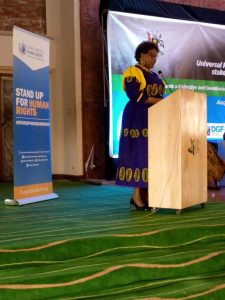 The two days UPR engagement was held under the theme” The UPR Mechanism: Having a collective and coordinated action in improving the human rights situation in Uganda”. The meeting will run from the 30th -31st August 2022 at a venue to be communicated soon, so this is to kindly request you to book the dates.
The two days UPR engagement was held under the theme” The UPR Mechanism: Having a collective and coordinated action in improving the human rights situation in Uganda”. The meeting will run from the 30th -31st August 2022 at a venue to be communicated soon, so this is to kindly request you to book the dates.
“Human Rights Work can only be realised when we work together, the Constitution of the Republic of Uganda Article 38 mandates the Citizens to participate in the affairs of the country. UHRC has already started the process of Advising Government on the implementation of UPR recommendations. CSOs are urged to play a role in Documentation, Reporting and information Sharing” Hon. Mariam Wangadya – UHRC Chairperson.
“Democratic Governance Facility (DGF) took the Process forward because it builds the capacity of Partners and stakeholders both state and Non State actors and focuses on Dialogue and inclusive participation” Nicole Bjerler- Head of DGF
DGF Chair, Joost van Ettro, Head of Cooperation alluded to the fact that; The vision statement for this phase is: “a Uganda where citizens are empowered to engage in democratic governance and the state upholds citizens’ rights”.
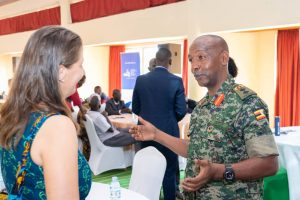 With the winding up of DGF, Development Partners will continue to further support the work of Human Rights, Governance in Uganda.
With the winding up of DGF, Development Partners will continue to further support the work of Human Rights, Governance in Uganda.
DGF’s work is aligned to the Uganda national priorities and commitments, such as the National Action Plan for Human Rights; National Development Plan III; the National Gender Policy; the Constitution of Uganda; and national commitments to Sustainable Development Goals (SDGs) particularly SDG 5 (gender equality) and SDG 16 (peace, justice and strong institutions).

DGF works in partnership with diverse state and non-state actors, to which it provides both financial and technical support to implement a programme that focuses on:
- Strengthening democratic processes that respond to citizens’ rights;
- Improving citizens’ inclusion and engagement in decision-making processes;
- Strengthening rule of law and improve access to justice for all citizens;
- Increasing protection and fulfillment of human rights and gender equality.
DGF’s approach to programming in this phase falls under three broad and interconnected spheres namely:
- Democratic processes that build citizen-state relationships;
- Citizen empowerment, engagement and accountability;
- Protection of human rights, access to justice and gender equality.
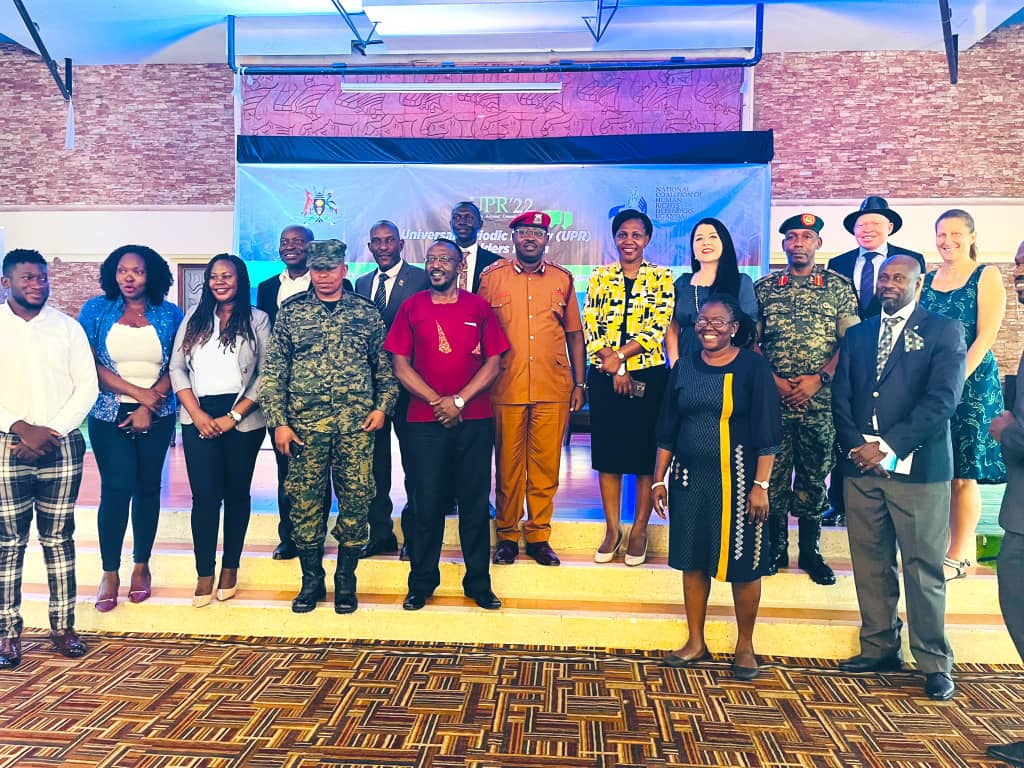
Also in attendance from the Government MDAs was the Commissioner of Prisons SSP Sentaro, Head of UPDF Human Rights Directorate Col. Deo Karekona, ASP Isaac Owana – Police Human Rights Department.
CSOs Contribute to UPR implementation of the recommendations through;
- Monitoring the Implementation
- Contextualizing and Localizing the UPR recommendations
- HRD Capacity building
- Institutionalizing the Recommendations
- Integration of the recommendations
- Creating awareness
- And Advocacy and Lobbying.
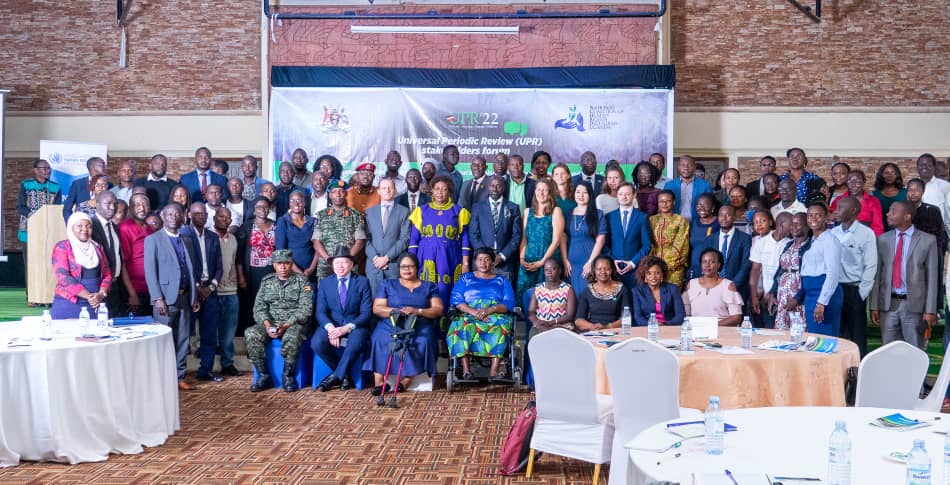
NEXT ARTICLE
A CORPORATE VISIT AT THE KABALE CENTRAL POLICE STATION AS PART OF LOSCO’s PARTNERSHIP RESPONSIBILITY
As LOSCO reached out to the frontline defenders; the Uganda Police Force at Kabale Police Station, following up the recent workshop conducted in partnership with HRCU, Some IEC materials with Human Rights Messages together with Personal protective equipment (PPE) were shared with the Regional Police Commander SSP Saiga Ibrahim, Regional PRO Elly Maate, The Kabale District Police Commander Ruganza Abel and OC Station Akanyijuka together with other Officers on Duty. This was in a bid to support in protecting them from COVID-19 infections since they receive different clients with in their premises.
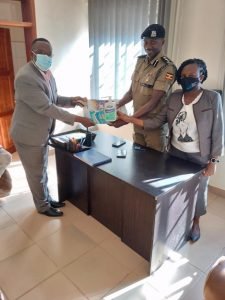
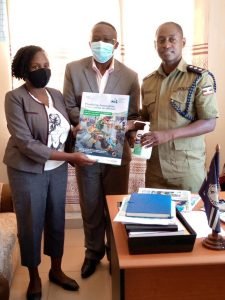
In our Discussions, LOSCO realised that partnership and collaboration with State Agencies and Actors in different aspects of Human Rights will play a major role in ensuring that Human Rights in Kigezi Sub Region are Promoted, Protected, and Fulfilled. This would be realised through consistent engagements, trainings and other avenues where messages are shared on the role of Duty bearers and Rights Holders in a sense of promoting development.
LOSCO will continue to engage the relevant stakeholders including the Education and Academic Institutions in the fight against Human Rights Violations and Abuses. Partnership and collaboration with our different stakeholders will go a long way to ensure this is rightfully achieved.
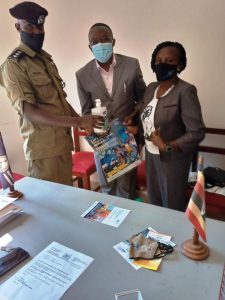
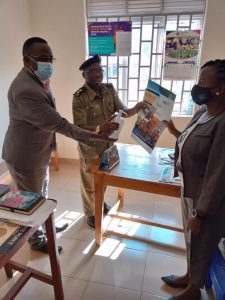
NEXT
RADIO TALK SHOW ON THE STATE OF HUMAN RIGHTS IN KIGEZI SUB REGION
Human Rights are NATURAL ENTITLEMENTS which accrue/belong to EVERYONE by virtue/reason of being HUMAN
A human being is a man, woman, child [or creature] of the species Homo sapiens, distinguished from other animals by superior mental development, power of articulate speech, and upright stance. Every time we think about human rights, we ought to think about where we can easily find them…
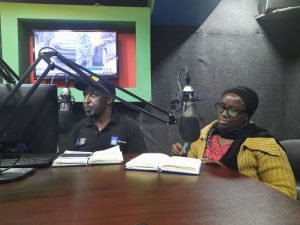
Looking at the Generations of Human Rights, FIRST GENERATION include Civil and Political Rights meant to Check excesses of the State for instance; Right to:
Vote
Personal liberty
Self determination
Freedom of association
Freedom of Expression
Participate in the affairs of one’s government
Focus areas that LOSCO in partnership with other Human Rights Organisations and Agencies are among others including; Capacity building, Research and documentation, Advocacy and networking, Legal aid and Human Rights Education.
The key aspects of the human rights context in Uganda today are among others;
- Fragile/dynamic
- Cases of human rights violations e.g. torture, unlawful arrests, impunity, SGBV and these continue to escalate during the times of Political heat and also in the context of COVID-19
About the region-specific context, the human rights situation in Kigezi sub region; they don’t differ much from the National context of Fragility and also the Cases of human rights violations e.g. torture, unlawful arrests, impunity, SGBV continue to increase. The cases of Women torturing men in silence and rampant murders are a clear manifestation of the increased lack of control at Household level.
Human rights defenders are doing quite so much work but violations continue to be witnessed because of the challenges that human rights defenders encounter in the course of their work in Kigezi sub region which include;
- Delayed justice
- Financial constraints
- Ignorance of some human rights defenders (State and non-state) and community members regarding concepts and underlying principles
- Wide scope of work and high expectations from beneficiaries
- Political interference
However, at the moment LOSCO with other human rights defenders are undertaking some steps in an effort to address the challenges and continue promoting human rights and fundamental freedoms which among others are;
- Dialogue meetings between human rights defenders in civil society and those in State institutions to discuss emerging issues
- Networking and collaboration amongst human rights defenders to address human rights issues
- Community dialogues and engagements and Radio Talkshows
- Capacity building and knowledge enhancement sessions/workshops
- Advocacy initiatives such as radio talk shows and social media campaigns
- Provision of legal aid and referral services
- Fundraising initiatives
There are identified opportunities and suggested recommendations available for LOSCO and human rights defenders in Uganda as they continue with their work
- Taking advantage of growing Information Technology
- Continued engagement and collaboration where there is political will
- Enhancing research and evidence based reporting and follow up of cases of human rights abuses and violations
- Resource mobilization for sustainability/continuity
In case of issues with Human Rights Defenders, one go and report cases of violation of their rights or when their security and safety is threatened.
- Uganda Police Force (know the hierarchy of offices)
- Uganda Human Rights Commission
- Community and local leadership e.g. LC1 Chairpersons
- Civil Society e.g. National level, Regional level and Grass-root level
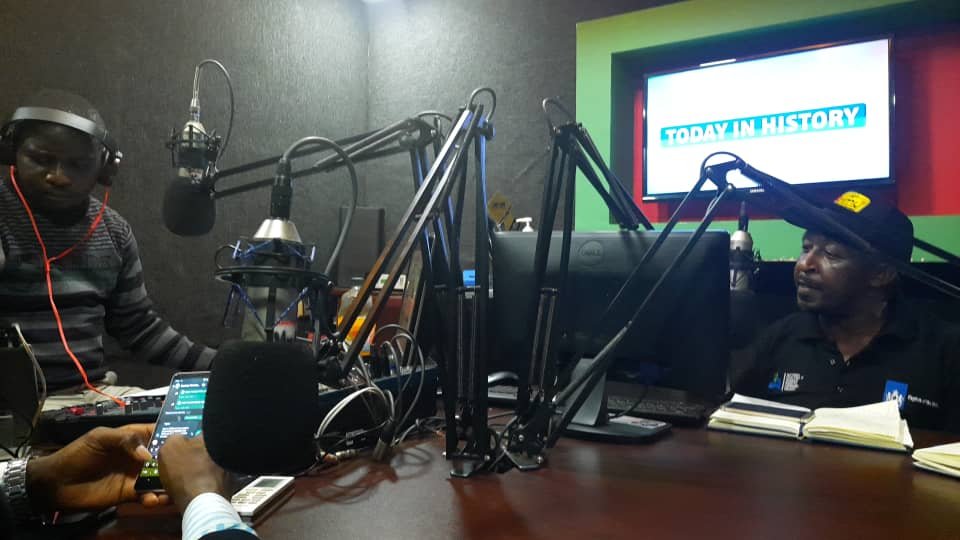
NEXT
CONSISTENT HUMAN RIGHTS EDUCATION IS THE MEANS TO ELIMINATE THE RISING CASES OF HUMAN RIGHTS ISSUES IN KIGEZI
LOSCO this morning paid a courtesy visit to the Kigezi Regional Office of the Uganda Human Rights Commission (UHRC).
This is a new office still being established under the leadership of Ms. TWEMBI B. THEOPISTA the Principal Human Rights Officer.
This was in a bid to identify the areas of collaboration and promotion of Human Rights in Kigezi Region.
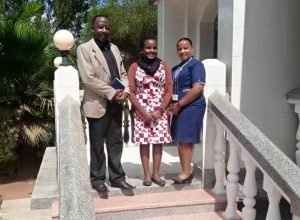 L-R – Mr. Taremwa Albert – Executive Director LOSCO, Ms. Namara Natasha Ellen – Programs Manager LOSCO and Ms. Twembi B. Theopista – Regional Human Rights Officer
L-R – Mr. Taremwa Albert – Executive Director LOSCO, Ms. Namara Natasha Ellen – Programs Manager LOSCO and Ms. Twembi B. Theopista – Regional Human Rights Officer
The Issues Identified are the unresolved cases of Teenage Pregnancies, rising cases of Domestic and Gender based violence, Land rights violations among other issues that have increased the loss of lives.
The Most Urgent intervention in curbing these issues is Mindset Change using a Gender Intersectionality lens targeting both Men and Women and also the Youths, PWDs, the Poor, which can be done through Community Sensitisation, Duty bearers Human Rights Education and consistent follow up on the legal Processes which can be done in close collaboration with the boundary stakeholders leaving on one behind.
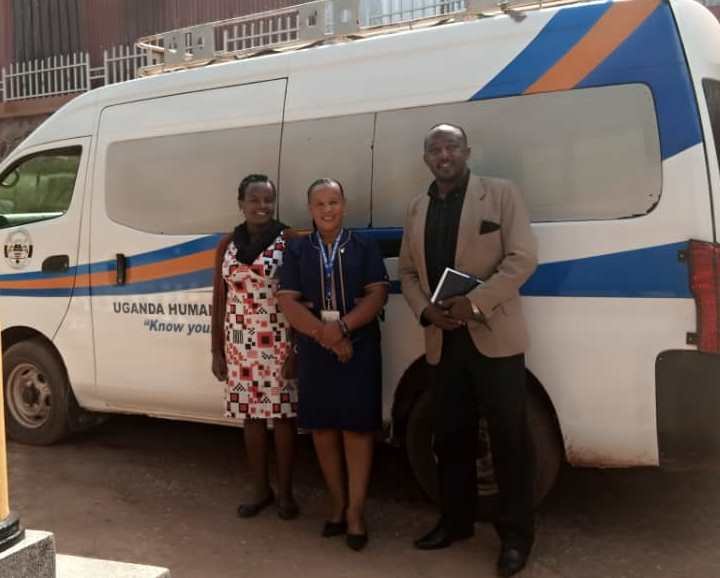
NEXT
HUMAN RIGHTS ABUSES AND MURDERS CAN BE STOPPED IN KIGEZI SUB-REGION THROUGH SENSITISATION & HUMAN RIGHTS EDUCATION
LOSCO today paid a courtesy visit to the Kigezi Regional Police Commander; SSP Ibrahim Saiga for a discussion on the rising cases of murders related to gender based violence. During the visit, the Commander agreed and clearly explained that property inheritance and Land related disputes are some of the leading causes of continuous killings in the region, with Rukungiri district topping the chats where in the Month of May alone, 15 lives have been lost. In appreciation of the LOSCO Saiga requested that we actively sensitize both men and women since they are equally affected by domestic violence.
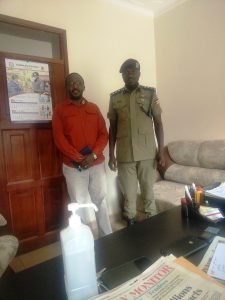 Kigezi presents a unique position where both men and women are equally involved compared to other regions where women are mostly affected and this calls for community sensitisation and Human rights Education.
Kigezi presents a unique position where both men and women are equally involved compared to other regions where women are mostly affected and this calls for community sensitisation and Human rights Education.
In most cases, the people who bought the land are not in the picture when the atrocities are being committed especially where the sons and daughters of the deceased are involved. In other cases, the limited job opportunities cause men to be desperate and end up selling the produce that women (their wives) pay steeply with their seat to have for food to their children and this always does not go well with both as Kigezi has continued to witness a steep rise in such challenges.
Women also contribute to economies through their work in caring for families. However, this is often not acknowledged or reflected in national economies, despite lobbying by women’s organisations.
Both push and pull factors have contributed to women increasingly taking up employment. Women and girls in particular suffer from inequitable land rights and experience restricted access to resources and inheritance. Boys and men can also be denied access, such as when the first son inherits more than the second or third son. Rights to resources may also affect ability to access other resources or services. For example, a woman’s lack of land ownership or rights may inhibit her ability to access credit, as land is often used as collateral. Achieving more equitable access to resources offers significant opportunities both for economic growth and for women’s empowerment
NEXT
MEETING WITH REGIONAL PRISONS COMMANDER KIGEZI ON THE STATE OF HUMAN RIGHTS IN PRISONS SERVICE
This morning, I paid a visit to the Regional Prisons Commander – Kigezi Region SSP Festo Sambya and among the issues discussed are ways and means of collaboration to promote Human Rights in the Prisons Service. One of the ways is through building the capacity of Officers through Human Rights Education and venturing into community service with a view of deconstructing the narrative that exists between communities and prisons.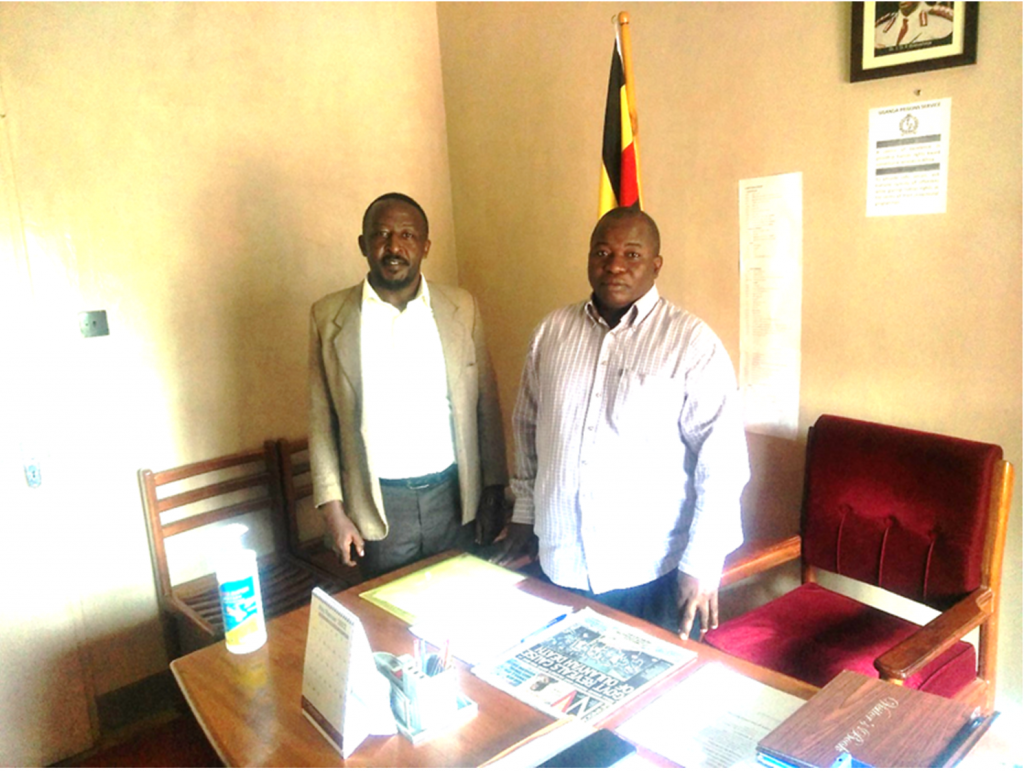
“We would want to establish working relationships with other Human Rights Activists so that our services are not perceived from the wrong angle and if all our OCs in the region are taken through a Human Rights training, it would be a welcome initiative for us and the country as a whole. No one can stand alone”. SSP Festo Sambya RPC Kigezi Region
Issues provided for in Article 44 of Ugandan Constitution 1995 several Human Rights issues are continuously addressed inappropriately. About Prohibition of derogation from particular human rights and freedoms. Whereby Notwithstanding anything in this Constitution, there shall be no derogation from the enjoyment of the following rights and freedoms—
(a) freedom from torture and cruel, inhuman or degrading treatment or punishment;
(b) freedom from slavery or servitude;
(c) the right to fair hearing;
(d) the right to an order of habeas corpus.
This in the Prisons Service needs to be well versed with and need to be handled as a matter of urgency.
LOSCO has a Mandate to work in partnership with all Government Agencies, Departments and Agencies for improvement of Human Rights Situation in the Region and the country for Development and Peaceful Co-existence.
NEXT
THE FORUM ON THE PARTICIPATION OF NGOs IN THE 71st SESSION OF THE AFRICAN COMMISSION ON HUMAN AND PEOPLE’S RIGHTS
Sub regional update on democracy, rule of law and human rights in East and Horn of Africa
As the continent grapples with a post covid 19 period, democracy, rule of law and realisation of human rights continue to be tested in the East and Horn of Africa. The region continues to witness a downward trend with increased reports of violations of the rights to freedoms of opinion and expression, association, and peaceful assembly. Despite risks and threats, human rights defenders continue their work to promote and protect human rights.
Burundi’s civic and democratic space remains severely restricted. While President Evariste Ndayishimiye made a few attempts to release pressure over civil society and Burundian citizens in general, including by releasing prisoners in January 2022, some HRDs arrested in the aftermath of the 2015 political crisis remain in jail. The government continues to exert its control and curtail the rights to freedoms of expression, peaceful assembly, and association. Reports of extrajudicial killings, arbitrary arrest, torture, and enforced disappearances of opposition members and government persist. Impunity remains widespread, including for violations and abuses related to the 2015 political crisis.
Djibouti and Eritrea remain the most repressive governments in the sub-region. The rights to free expression, association, and peaceful assembly continue to be severely restricted, making it virtually impossible for independent human rights organisations or individual HRDs to operate in the country.
The Ethiopian conflict has wreaked havoc on millions of people in Tigray and the neighbouring regions of Afar and Amhara, as well as in Benishangul Gumuz and Oromia, which continue to experience intercommunal conflict and localised violence. Gross and systematic violations and abuses, including attacks against civilians, sexual violence, arbitrary arrests, and ethnic cleansing, continue to occur. Ethiopian citizens’ enjoyment of their freedom of expression has further declined during the reporting period. Ethiopian authorities declared a nationwide state of emergency on 4 November, giving the government broad powers that increase the risk of arbitrary arrest and detention of at-risk communities. Several journalists have been harassed, intimidated, or arrested. The government has made a few positive steps recently, including declaring a ceasefire to allow relief to reach afflicted citizens and releasing several political opposition members from prison. The state of emergency was lifted in early 2022. Recently, Prime Minister Abiy Ahmed has pointed to talks with the Tigray People’s Liberation Front (TPLF), increasing prospects for peace.
Kenya is set to hold general elections in August 2022. The pre-election period is characterised by grave violations, including extrajudicial killings, enforced disappearances, and torture often committed by security forces. Gender-based violence, primarily against women and girls, continues, and the LGBTQI community continues to be targeted. To date, Kenyan authorities have used the Covid-19 pandemic as an excuse to restrict freedom of peaceful assembly. In the reporting period, the Magistrate Court in Mombasa found six activists guilty of illegally gathering and failing to maintain physical distances in a public place.
Rwanda continues to stifle its civic space and target those it perceives as critics. Arbitrary arrests, torture, threats, and unfair trials remain commonplace for political opponents, critics, journalists, and bloggers. Several critics continued to be targeted in this reporting period, including Paul Rusesabagina. The civic space environment does not allow for criticism, and as a result, citizens, journalists, media, and civil society self-censor.
In Somalia, the presidential election originally scheduled to take place in late 2020 is postponed until an agreement is reached. The lower house elections, initially scheduled for November to December 2021, have been postponed, and the deadline continues to be further extended. During the reporting period, the right to freedom of opinion and expression remained limited, with both state and non-state actors targeting journalists. Several journalists were harassed, abused, and arbitrarily arrested. In Somaliland, authorities increased the censorship of journalists and the media.
In South Sudan, concerns have been raised over the ongoing conflict and the possibility of resumption of the armed conflict at national level. Gross human rights violations and abuses of international humanitarian law continue, including rape, sexual and gender-based violence (SGBV), and increased attacks on humanitarian workers and convoys. An increase in violence in Upper Nile State and other parts of the country threatens the 2018 peace agreement (R-ARCSS). On 22 March 2022, the main opposition force, Sudan People’s Liberation Movement/Army in Opposition (SPLM/A-IO), suspended its participation in the security mechanisms tasked with overseeing the implementation of the R-ARCSS. SPLM/ A-IO claimed the suspension was based on the security mechanism’s ineffectiveness in implementing the peace agreement. On 31 March 2022, the UN Human Rights Council adopted a resolution that extended the mandate of its Commission on Human Rights in South Sudan (CHRSS). Civic space is increasingly restricted as the government continues to crack down on journalists and government critics.
Sudan’s humanitarian, security, and economic situation has been deteriorating since the coup on 25 October 2021. Security forces continue to violently suppress protests and target protestors. The country has been immersed in a political and social crisis since the beginning of January, following the resignation of Abdallah Hamdok as prime minister of the transitional period. The country remains without a functioning government. Several protestors are held without charges and are refused access to their lawyers and families. Moreover, the value of Sudan’s currency is depreciating. Consequently, the prices of bread, fuel, electricity, health care and public transport have all skyrocketed. UN Special Representative Volker Perthes warned that while the protests began as an “anti-coup protest,” they developed an additional socio-economic character. Additionally, intercommunal violence in Darfur has intensified.
Since the swearing in of President Samia Suluhu Hassan, in March 2021, Tanzania has taken positive measures to improve its civic space. The government issued new publishing licenses to four newspapers banned during the late President John Magufuli’s rule. Additionally, it announced its intention to amend the restrictive Media Services Act (2016). President Samia Suluhu met with Tundu Lissu, the exiled opposition figure residing in Belgium. Authorities also freed opposition leader Freeman Mbowe and his co-accused after the Director of Public Prosecutions submitted a motion to dismiss the terrorist accusations against them. Despite the positive measures taken, the situation remains tense for media freedom. In the first two months of 2022, eight journalists were arrested.
The human rights situation in Uganda deteriorated in the reporting period. Restrictions on critics and opposition leaders have increased. Security forces arbitrarily detained, abducted, and tortured critics and political opponents. In December 2021, author Kakwenza Rukirabasaija was kidnapped and tortured whilst held incommunicado. Further, the rights to freedoms of opinion and expression, peaceful assembly, and association are increasingly under pressure. The authorities targeted and arrested several journalists and raided two media houses. The main opposition leader Robert Kyagulanyi, also known as Bobi Wine, was under house arrest ahead of his scheduled campaign for the by-elections in December. To date, close to 30 of the 54 NGOs suspended arbitrarily by the NGO Bureau continue to be under indefinite suspension. Chapter Four Uganda challenged the arbitrary actions of the NGO Bureau; courts are yet to rule on the matter. HRDs and journalists face arrest, harassment, intimidation, and assault in reprisal for their work.
Recommendations
Considering the updates and trends observed, DefendDefenders makes the following recommendations for action by the African Commission on Human and Peoples’ Rights:
- Urge all member States to ensure the protection of human rights defenders, notably by observing the African Charter on Human and Peoples’ Rights;
- Call on all member States to adopt specific legislative measures to recognise and protect the status of HRDs, and provide a working environment conducive for civil society, as per Res. 376 (LX) 2017 adopted by the Commission during its 60th Ordinary Session Niamey, Niger;
- Urge member States to cease the harassment and arbitrary detention of HRDs, including those working on LGBT rights;
- Call on States to abide by the Guidelines on Freedom of Association and Assembly adopted by the Commission during its 60th ordinary session;
- Call on all member States who have not done so to deposit the declaration under article 34 (6) of the protocol of the African Court on Human and Peoples’ Rights to allow individuals and NGOs to directly submit their cases to the Court;
- Call on the Federal Government of Ethiopia through independent and impartial bodies to investigate allegations of human rights violations thoroughly and effectively and to hold those responsible accountable, and urge the government to cooperate with African and international mechanisms, including the African Commission-established Commission of Inquiry on Tigray and the International Commission of Human Rights Experts on Ethiopia established by the UN Human Rights Council;
- Adopt a resolution that strongly condemns the military coup in Sudan and calls for restoration of the civilian-led Transitional Government and urges respect for human rights and fundamental freedoms including the right to freedom of association and peaceful assembly; and
- Adopt a resolution urging, among other things, the government of South Sudan to immediately establish and operationalise the Hybrid Court for South Sudan and other transitional justice institutions as per Chapter V of the Revitalised Peace Agreement (R-ARCSS), and to ensure accountability for crimes committed since 2013, and to put an immediate end to harassment, intimidation, and repression, including by the National Security Service, of independent human rights actors and those reporting on human rights in the country.
NEXT
COLLECTIVE ADVOCACY TO RELEASE WOMEN’S LAND RIGHTS IN UGANDA
The Stand for Her Land campaign (S4HL) is a global advocacy campaign to strengthen the land rights of millions of women through collective advocacy that aims to close the implementation gap between law and practice. S4HL is an inclusive, collaborative effort among a diverse group of allies including representatives of civil society, development organizations, women’s rights and empowerment groups, land rights advocates, Land mapping and technical specialists all over the world.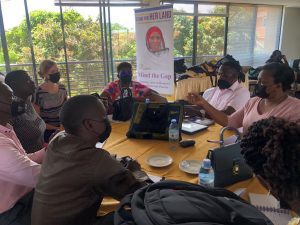
This Aims to tackle;-
- Political Will Global level Actors provide the needed resources to realise WLR
- CAPACITY Building – Knowledge, resources and incentive to better secure and guarantee WLR
- BEHAVIORAL CHANGE and SOCIAL NORMS – Address Social norms that limit WLR in communities, political spaces and institutional structures
- WOMEN’S LEGAL LITERACY – Women’s legal literacy and agency with regard to land rights, agriculturally increased in communities.
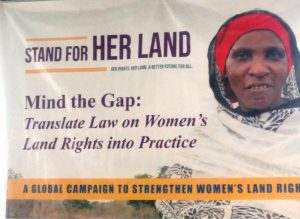
Looking at the Status of Women Land Rights in Uganda
- 80% of Land is under Customary Tenure (Unregistered)
- 3% Agricultural Land contributes to 26% of UG GDP.
- Women less than 20% control outputs do 70%-80% of the Agricultural cultivation.
Statistics:
- 31% of women between 15-49 years own land compared to 48% of Men, 38% women own houses compared to 54% men Women’s ownership of women ownership of Land has increased by 15% in 2012 26% in 2017.
- 38% of women and 54% of men 15-49yrs own a House alone of jointly with someone else. And 31% of Women and 48% of Men own land alone or jointly with some. Most have no documentation
- As of 2013/14 62.3% of the men and only 14.3% of women owned agricultural land alone while 23.3% owned it jointly. This was due to the disparity in the incomes of men and women, patriarchal and negative.
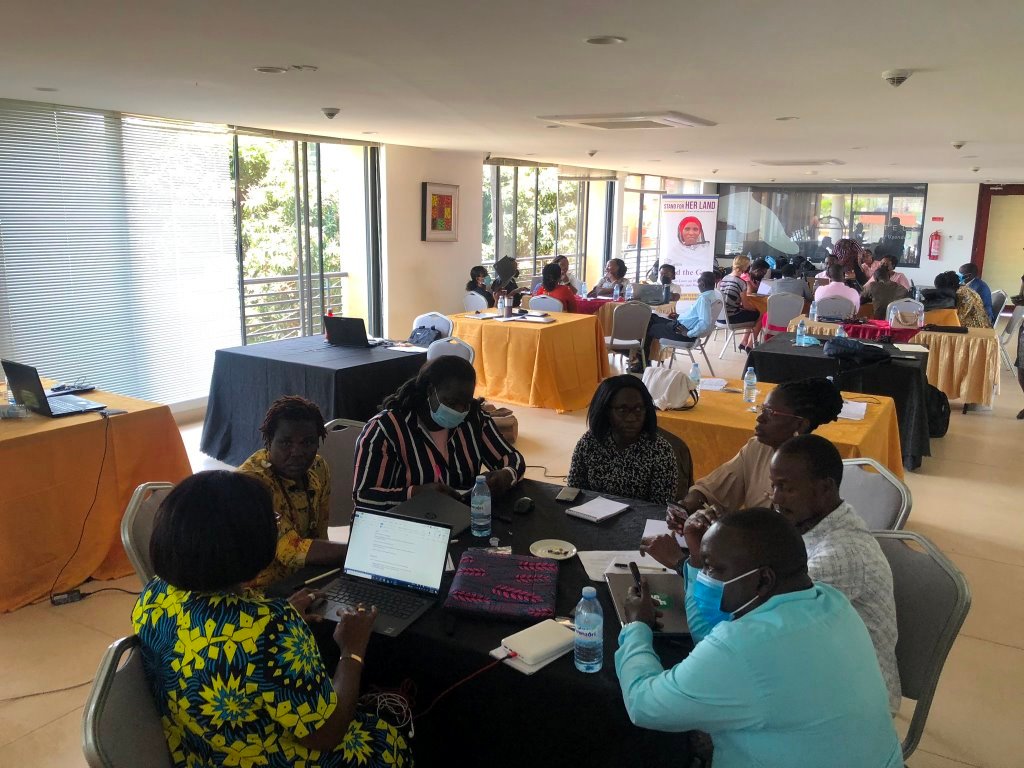
UCOBAC is currently coordinating the Stand For Her Land Campaign in Uganda under a 5 year project funded by BMZ and led by Landesa and LOSCO is taking the lead in the Campaign in Kigezi Sub region
NEXT
A CONVERSATION ON THE RISING GBV AND LAND RIGHTS VIOLATIONS IN KIGEZI WAS TIMELY
LOSCO has evolved into a legally registered Non-governmental organisation with a mandate “To facilitate stable and sustainable community development”.
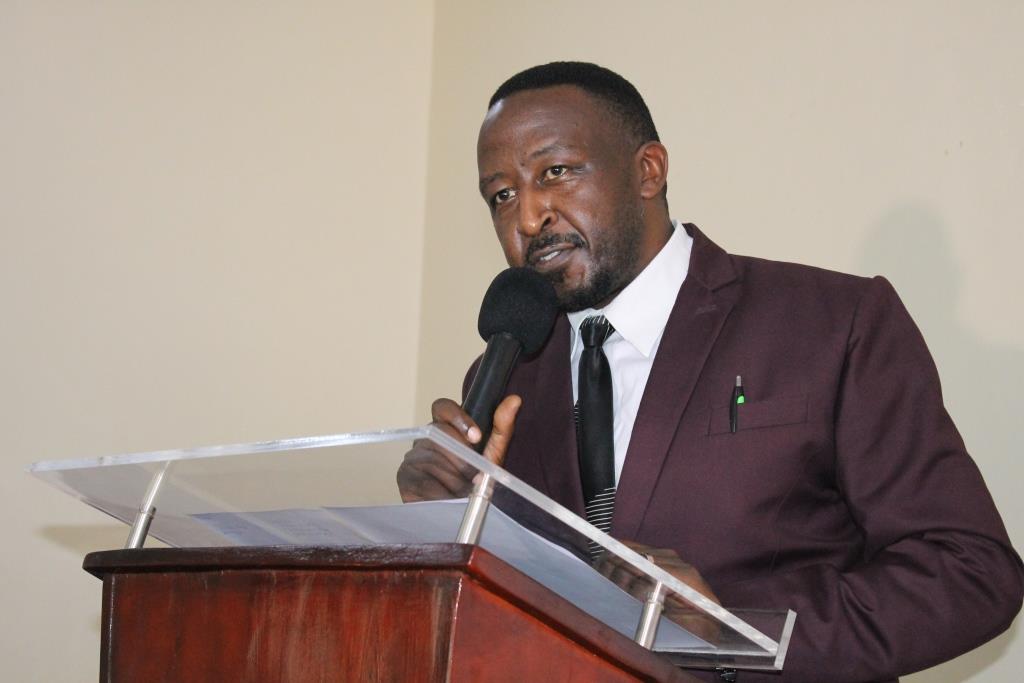
As a result, LOSCO in partnership with National engagement strategy (NES) has mounted a multifaceted response to address this shadow pandemic. This has in
volved working with local governments, justice, police and health sectors, as well as civil society and grass roots women’s organisations, to e
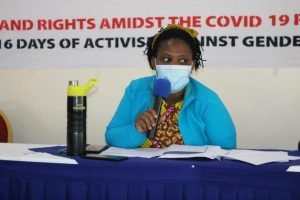
nsure safe public spaces for women and girls during the crisis and to strengthen the capacity of front-line service providers, shelters, and helplines.
In this challenging environment of the COVID-19 and with the sustained disproportionate lockdown restrictions, Civil Society Organizations (CSOs), and HRDs play an essential role. CSOs that connect to and work with marginalized communities with a focus on advocacy and accountability are key to ensuring that human rights, transparency, and citizen’s participation are safeguarded. Furthermore, in an environment where governments face unprecedented economic negative shocks and need to decide what trade-offs to make, civil society organizations that focus their work on research and analysis are essential to promote decisions that are evidence-based. Without organizations that represent a wide range of people, we cannot build just, peaceful and inclusive societies that ¨leave no one behind¨.
While restrictions may be justified when their temporary nature and proportionality are ensured, there is also evidence that, in many contexts, the current situation has been used as a pretext to limit civil society action in a targeted and unjustified manner.
LOSCO has been undertaking monitoring of human rights situation focused on gender based violence and land governance issues from the first lockdown and was able to issue statements concerning the same. As a result of those concerns above, LOSCO feels from her point of view, this necessitates a multi sector dialogue.
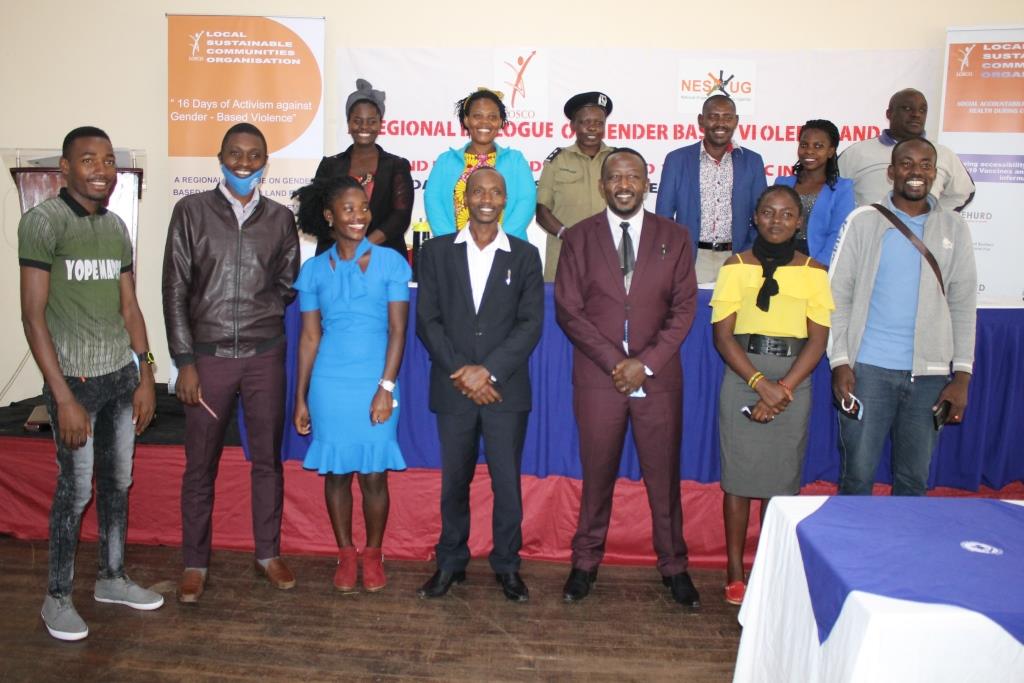
NEXT
THE SITUATION ON RIGHTS OF PLWDs IN UGANDA
WHAT IS DISABILITY?
A physical or mental condition that limits a person’s movements, senses, or activities or A disadvantage or handicap, especially one imposed or recognized by the law.
DISABILITY SITUATION
According to the Joint Study entitled ―Chronic Poverty and Disability in Uganda, carried out for Action on Disability and Development, LOSCO established that, exclusion of people with disabilities in Uganda was noted to happen in three different ways: economic, social and political.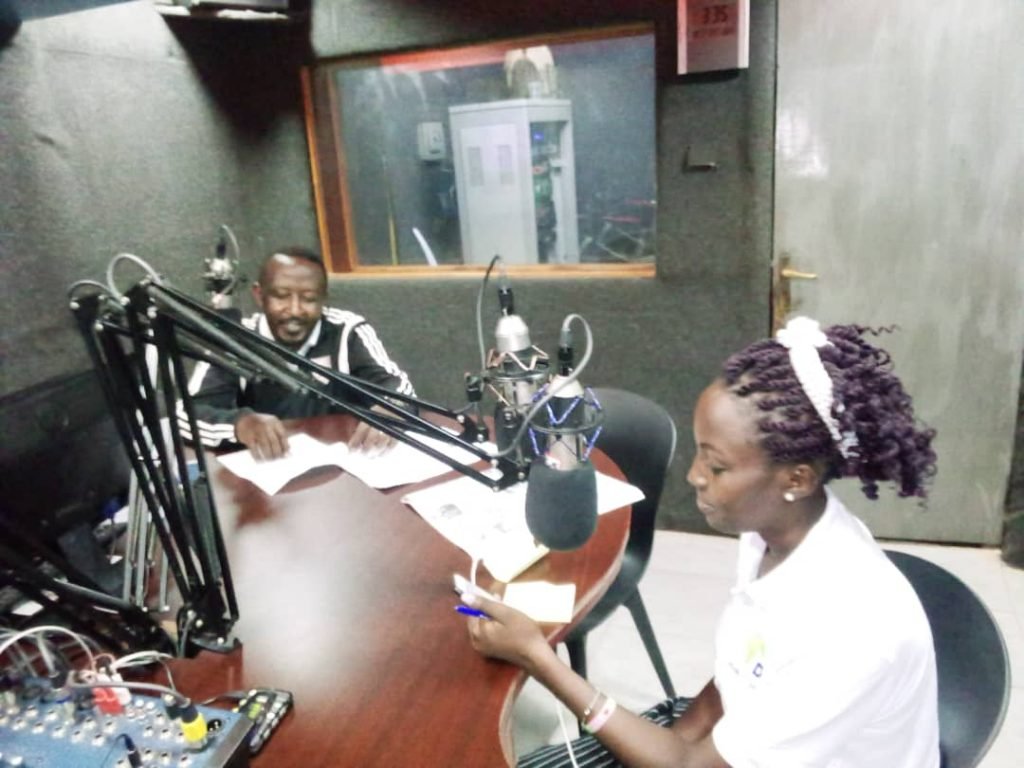
Worldwide, fifteen percent (15%) of the world’s population or one (1) billion people live with some form of disability. In Uganda, (UBOS 2016) 12.4% of the Uganda’s population lives with some form of disability approximately 4.5 million Ugandans are persons with disability hence a development concern and Kawempe division accounts for (22.6%) of all persons with disabilities living in Kampala district. 10% of an affected population [by disaster] will develop serious psychological trauma. 80% of people with disabilities live in developing countries, and there, make up 20% of the poorest of the poor, living on less than $1 a day. This Report showed that disability was more prevalent amongst women (15 per cent) than men (10 per cent); higher in rural areas (15 per cent) than in urban areas (12 per cent). This nearly correlated with the World Health Organization Report of 2010 which put the global disability prevalence rate at 15%.
Children with disabilities
The Uganda Population and Housing Census indicated that the total population of all children aged 18years and below was 57.2% (19,874,000) of the total population. 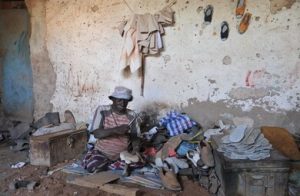 Considering that 5.82% of Ugandan Children are estimated to be children with disabilities, this translates to 2,027,148 children with disabilities (1,052,000 boys and 974,488 girls), (National Action Plan for Children with Disabilities 2016/17- 2020/21, MGLSD). This is comparable to the estimated a prevalence of about 13%, that is, 2.5 million children living with a disability (UNICEF, 2014). Uganda is overall on track towards achieving education for all, with a net enrollment rate of 93% boys and 96%girls (Ministry of Education and Sports, 2016/17). The Uganda National Population and Housing Census data 2014 shows that, 605,380 (304,270 males and, 301,110 females) were persons with disabilities aged between 6-12 years and rightly contributing to the Gross Enrollment Ratio (GER) in primary education.
Considering that 5.82% of Ugandan Children are estimated to be children with disabilities, this translates to 2,027,148 children with disabilities (1,052,000 boys and 974,488 girls), (National Action Plan for Children with Disabilities 2016/17- 2020/21, MGLSD). This is comparable to the estimated a prevalence of about 13%, that is, 2.5 million children living with a disability (UNICEF, 2014). Uganda is overall on track towards achieving education for all, with a net enrollment rate of 93% boys and 96%girls (Ministry of Education and Sports, 2016/17). The Uganda National Population and Housing Census data 2014 shows that, 605,380 (304,270 males and, 301,110 females) were persons with disabilities aged between 6-12 years and rightly contributing to the Gross Enrollment Ratio (GER) in primary education.
SUCCESSES AND CHALLENGES IN THE REPORTING ABOUT THE SITUATION OF PERSONS WITH DISABILITIES
The major challenges for these children not adequately attending school are; inadequate financial resources provided to responsible institutions at national and local level, insufficiently trained staff, inaccessible physical environment, (disability-unfriendly classrooms and latrines) communication and information means ( e.g. Lack sign language and Braille)as well as a shortage and unaffordability of assistive and mobility devices .(UNICEF, 2016:p9). For disabled children, every day is a struggle. The multitude of barriers limiting their access to education and the weight of what other say about their condition are obstacles to their well-being and fulfillment. No matter what physical or mental condition the children are living with, they all are entitled to an environment that will promote their development – whether to go to school to learn about cultural activities or to have fun. Health care interventions, education, rehabilitation and sustainable livelihood development are the aspects to be taken care of.
Disability is just as much or more about how society puts up barriers that exclude and disadvantage people with impairments by not recognizing their rights, needs and potentials, prejudice towards persons with disabilities. These barriers include poverty, lack of education, gender, religion, age, social stigma and geographic isolation. The changes need to be brought from the policy level that would make every public institutions accessible to the people living with disabilities, develop education materials for the people with disabilities and make it accessible to them, make provisions for their independent living in the community as well as support need to be provided by other funding bodies as well the government entity for responding to emergencies and natural disasters and for disaster preparedness for everyone including the people living with disabilities to control the risk. Also, a social culture should develop that accept every individual in the society equally without discriminating in any of the ways.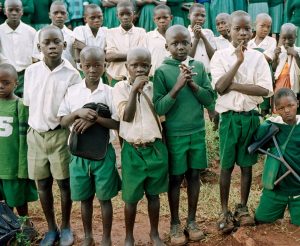
Economically, exclusion centered around obstacles to participation in livelihood activities, especially those of an income generation nature. Access to financial resources was noted to be a major factor in this regard. While there was no evidence of official policy by financial institutions to exclude disabled people from accessing loans, most disabled people were on record for having been denied credit facilities in nearly all such financial institutions simply because managers thought they had no ability to pay back. People with disabilities were also excluded from joining credit groups by able-bodied group members. In such instances members of the groups feared that if allowed, disabled people would never be able to pay back their loans. In certain instances it was clear that able-bodied community members sympathized with the condition of disabled persons to the extent that they pitifully excluded them. Evidence from the United Nations Agencies shows that ethnic groups are scattered across Uganda, live in rural areas and are largely disadvantaged. Ethnic minorities women with disabilities tend to experience triple discrimination, are marginalized, have very limited access to property and majority are never included at decision making levels both within their structures and mainstream.
LEGAL PROVISIONS AND FRAMEWORK
Uganda is one of the few countries in the region that boast of comprehensive legal provisions for inclusion of people with disabilities in the country’s development process. The main framework for this is the 1995 Uganda Constitution which enshrined in it specific provisions on disability. The Constitution emphasizes achievement of: (a) Fair representation of marginalised groups (including disabled persons), and (b) Recognition of the rights and dignity of persons with disabilities.
Disability is currently recognized as a development concern which requires inclusion as pointed out within the Sustainable Development Goals (SDGs; the National Development Plan (NDP II) 2015/16 – 2019/20; the Social Development Sector Plan (SDSP1) 2015/16-2019/20. Uganda had earlier demonstrated its commitment to protecting and promoting rights of persons with disabilities through the 1995 Constitution with pro -active provisions in the State and Policy Objectives XV1 on Recognition of Rights of Persons with Disabilities to respect, Objective XX1V on Development of Sign Language, Article 32 on Non-discrimination on basis of disability ,among others, Article 35(i) and (ii) stipulates the Right to respect and human dignity and; Taking appropriate measures to ensure their full mental and physical potential respectively, amongst others.
The Persons with Disabilities Act, 2006, makes provisions for the elimination of all forms of discriminations against people with disabilities and towards equal opportunities. The Local Government Act, 1997, Parliamentary Elections Statute, 1996, and the Movement Act, 1998. These laws aim to increase the representation of disabled people in the public sphere. Traffic and Road Safety Act, 1998, prohibits denial of a driving permit on the basis of disability. Uganda Communications Act, 1998, provides for the promotion of research into the development and use of new communications techniques and technologies in favor of persons with disabilities. Workers’ Compensation Act, 2000, provides compensation to workers who are injured or disabled through industrial accidents. The National Council for Disability Act (No. 14), 2003, monitors and evaluates the rights of persons with disabilities as set out in international conventions and legal instruments, the Constitution and other laws. The Business, Technical, Vocational Education and Training (BTVET) Act, No. 12, 2008, promotes equitable access to education and training for all disadvantaged groups, including disabled people. National Policy on Disabilities, 2006, provides a human rights-based framework for responding to the needs of persons with disabilities. The Equal Opportunity Act, 2006, and the Employment Act (No. 6), 2006, both prohibit discrimination of persons in employment based on disability. The Universal Primary Education Act makes it financially possible for families to send their disabled children to school by providing free primary education to four children in every family, including disabled children. The Uganda Vision 2025 and the Poverty Eradication Action Program (PEAP), provide a long-term development framework and initiatives aimed at sustaining rapid economic growth and tackling poverty. In addition to the above; Uganda, on 25th September, 2008 ratified the UN convention on the Rights of Persons with Disabilities whose purpose, according to Article 1 of the Convention, ―… is to promote, protect and ensure the full and equal enjoyment of all human rights and fundamental freedoms by all persons with disabilities, and to promote respect for their inherent dignity.
All the above attest to the government’s will and some degree of commitment to improving the quality of life for the disabled community in Uganda. Therefore, it could be argued that there are no deliberate efforts to frustrate the participation of disabled people in social, political and economic mainstream community programmes.
Data on disability inclusiveness is expected to be collected by the LC 1 vice chairperson who is responsible for the children with disability in the village, the secretary for Persons with Disabilities in the village, The parish chiefs who are government employed personnel to implement government development programs in the parish, Community development officers at Sub county levels who are technical officers responsible for the overall social development activities and programs in the Sub county and the District Community Development Officer who receives these reports and sends them to the respective Ministry. However, this in most cases. In addition, National council for Disability is mandated to monitor and make reports to parliament through the same decentralization system because it is expected to have District Councils and Sub County Councils for Disabilities as per the National Council for Disability Act (2003). Local NGOs and CBOs concerned with issues of disability also make reports to their umbrella organizations and to their development partners and to the relevant Ministries. Their Issues are also seen accessibility to Classes, Hotels, Storied Buildings, Among others
CHALLENGES IN THE DATA COLLECTION AND REPORTING SYSTEM
The availability of the data collection and reporting systems in the country is hindered by the following challenge;
- Negative attitude by the technical officers, leaders/politicians towards the issues of disability inclusiveness and tendency to refer to disability inclusion as an expensive venture
- Lack of awareness about the rights of persons with disability, need for disability inclusive reporting and limited knowledge on what to be reported.
- Financial and human resources which are not aligned to meet this challenge at all levels of governance which makes it rather hard to come up with real data on disability.
- Multi- sectorial coordination for disability and development which is weak
- Exclusion of persons with disability in the planning, implementing, monitoring. Evaluation and reporting on programs and activities to bench mark the issues of disability inclusiveness.
RECOMMENDATIONS
- Finalize, review, operationalize and report on performance of major policy and legal frameworks such as, Persons with Disabilities Bill 2016, National Policy on Disability, 2003, Draft National Inclusive Education Policy, Mental Health Bill, National ICT Policy on Persons with Disabilities, among others, in line with the Convention on the Rights of Persons with Disabilities and 2030 Agenda.
- Mainstream disability in the five thematic areas of the Sustainable Development Goals framework, MDAs and Local Governments as cross cutting issue to be tracked from planning, implementation monitoring and evaluation and develop specific indicators for their reporting.
- Establish development funds to cater for unique needs of Persons with disabilities if they are to move along with others.
- Popularize guidelines on Disability such as; Guidelines on Disability 2012 and National Disability Inclusive Planning Guidelines 201 which are in line with Sustainable Development Goal and, CRPD Provisions
- Rejuvenate and scale up the Community Based Rehabilitation Program to raise awareness, build capacity and promote rehabilitation and rights of PWDS, among others.
- Strengthen and build capacity Ministries, Departments and Agencies, Local Governments and Monitoring Bodies to plan, implement, monitor, evaluate and report on disability inclusion.
- Include disability in Social Protection Programs especially with particular focus on those with severe and multiple disabilities
- Establish and mainstream Disability Information Management Systems across sectors strengthen and National Council for Disability to compile as a source
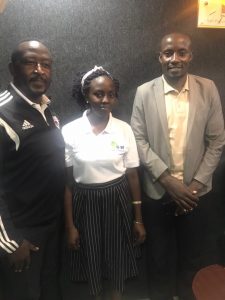
NEXT
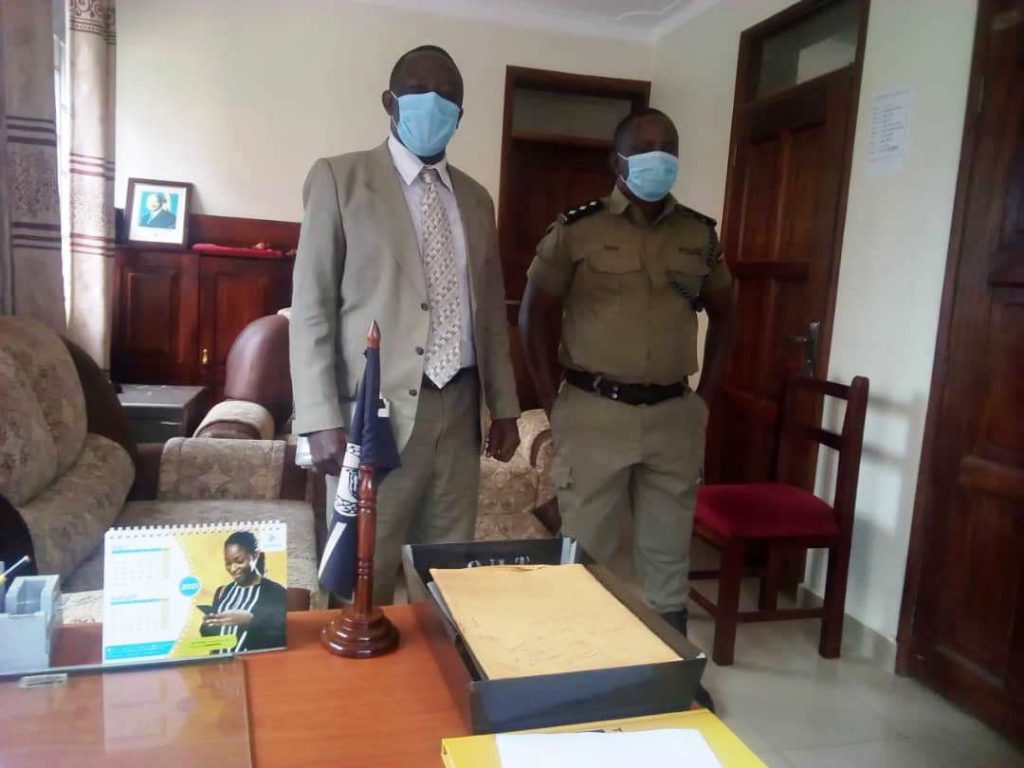
HUMAN RIGHTS SITUATION IN KABALE
We had a detailed meeting with the DPC of Kabale Central Police station discussing issues of Human Rights. Mr. Byansi Muhammad clearly stated the Human Rights challenges in Kabale are appalling where families are killing themselves, Men cutting their wives because of Land Wrangles, other communities making their own rules of engagement on suspects. Land Wrangles and Domestic Violence are the leading issues in Kabale.
We came to agree that Sensitisation on Human rights and Community policing are the key actions to be taken to curtail these vices. LOSCO is preparing a Dialogue with all stakeholders in the wake of all these matters.
Safety and Justice are the major Interventions for the lives of all Ugandans.
NEXT
THE SITUATION OF BATWA COMMUNITIES IN KIGEZI SUB REGION
Our organisation works on human rights advocacy and provides support to human rights defenders in the region specifically Kabale, Kisoro, Kanungu Rukungiri, Rukiga, Rubanda, and Ntungamo Districts of southwestern Uganda. The organization has been engaging robustly for the last 2-3 years.
As you may know, Uganda has been faced with a double human rights situation both because of COVID-19 pandemic but also the political environment. Some people who have since died, others displaced while others are tortured, and they include some in Kisoro and Kanungu and we worked on a case of a youth who was since returned; tortured, visibly traumatized[1]
Our organisation’s role in monitoring and documentation of human rights situation is visible[2]. Individually as the team leader, I was involved in the Electoral process and Human Rights issues as monitor supporting various national level organisations with information inclusive of the NCHRD-U, NGO Forum, CCEDU, ACFIM, UWONET and Chapter Four Uganda. This exposed me to Human Rights issues among the Batwa Communities.
Uganda’s Batwa community are highly vulnerable; they don’t own much land and often don’t have access to capital. They were one of the earliest residents of the Equatorial Forest – consisting of Uganda, Burundi, Rwanda and Democratic Republic of Congo – and are defined by their unique history of forest-dwelling and hunter-gatherer lifestyle.
Today, the 6,200 Batwa living in Uganda are mostly landless labourers. They often live as squatters on remote, hilly and isolated locations because they’ve been progressively marginalised and forced off their ancestral land. This started in the 1930s – when the British colonial government declared Uganda’s forests as “reserves” – and, later on, when some forested areas were cleared for agriculture.
In Uganda in the 1990s, the majority of the indigenous Batwa people were evicted and displaced from their ancestral land, the forests that they depended on for survival. As a result, the majority of Batwa people now live in poor status and have to depend on others for survival through offering cheap labour. They can only eat when they have worked and most cases there is no work.
The COVID-19 pandemic has strongly affected many people and in many ways. This does not exclude indigenous people who are frequently regarded as the poorest and may live below normal standards of living compared to other people in the world in which case the Batwa are not spared.
In this period of COVID-19 where everything is achieved through struggle, cheap labour is not always required. Before, the Batwa would sell used bottles on the roadsides, work as potters, clean, and pick up rubbish around homes and hotels; however, due to COVID-19 they are prevented from leaving their homes to look for food. Increased hunger and poverty among the Batwa has become the order of the day.
Furthermore, in this period, agriculture has gained a lot of value. Everyone is looking at farming as the only means of survival since it’s among the few activities allowed to continue operating in this activity restrictive time. This however, favors those with gardens or land to cultivate and produce food to sell and to eat. For Batwa who do not have land at all, survival in these hard times is very intricate. They that had been surviving by offering cheap labour like washing, cleaning, carrying garbage among others have been forced to stay at home, and hence are unable to get jobs.
As we look forward to overcoming the COVID-19 pandemic, a lot of harm has already been caused towards the Batwa Community. It would therefore be a prudent attempt to render any available assistance financially and materially support these Batwa people.
We assessed how their poverty and marginalisation affect their ability to adapt to development processes. We also examined whether their needs and concerns were incorporated in the design and implementation of adaptation responses.
One of the most important ways to support adaptation is to listen to the affected communities and learn from their experience and needs. Yet, the Batwa lack voice, agency and influence in development planning and actions.
As a result, they’re often not recognised or represented in the design and implementation of adaptation responses. This means the responses don’t meet their needs or realities.
Many Batwa members felt excluded from the political processes in Uganda due to systemic and structural barriers. For instance, many of them don’t have national identification cards as they are not recognised as Ugandan citizens. They also lack access to education because of school fees. These factors limited their ability to influence national policies and participate in politics[3].
Batwa situation provides valuable insights for Ugandan policymakers, and other contexts where communities share similar experiences of inequality and systemic injustice. Indigenous communities – like the Batwa – are some of the most vulnerable to climate change and are in dire need of plans that address their hardships. Yet, in many places climate-affected communities have found themselves sidelined with the consequence that adaptation efforts often fail to meet needs on the ground.
[1] (https://www.monitor.co.ug/uganda/news/national/kabale-garage-owner-held-over-torture-of-nephew-1875232)
[2] https://t.co/mhzXzEKWcL?amp=1
[3] https://www.preventionweb.net/news/ugandas-batwa-community-are-vulnerable-climate-change-arent-involved-adaptation-decisions
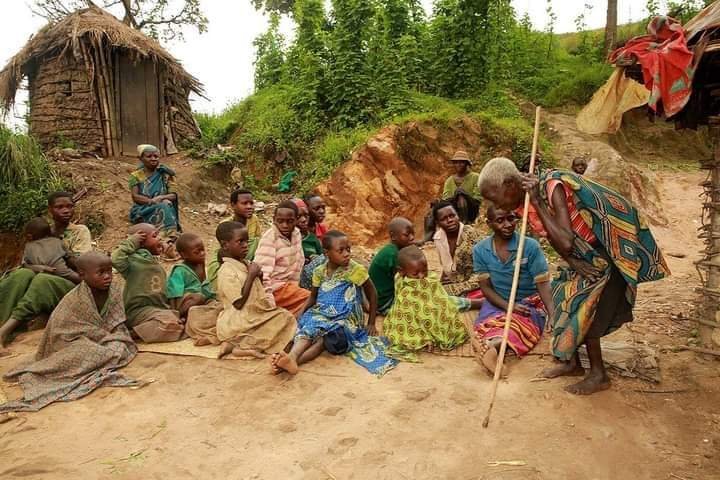
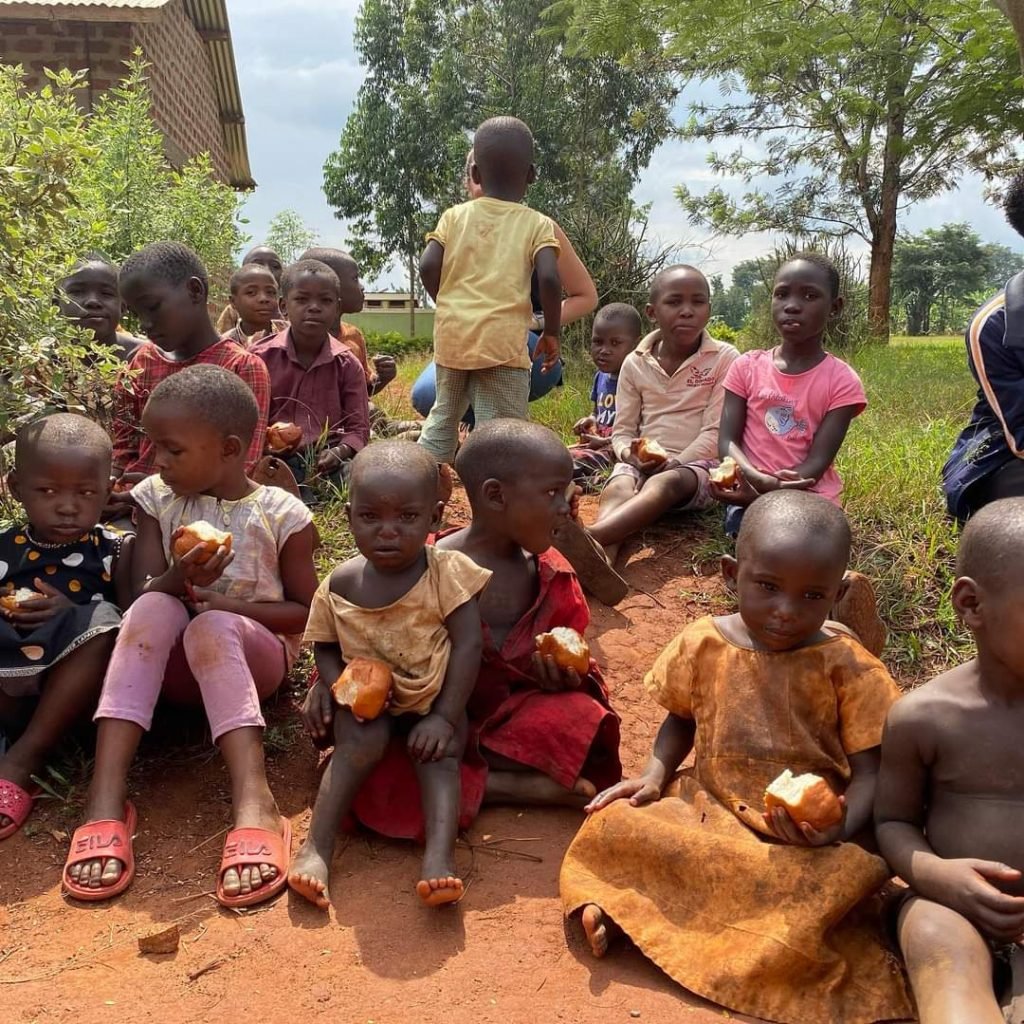
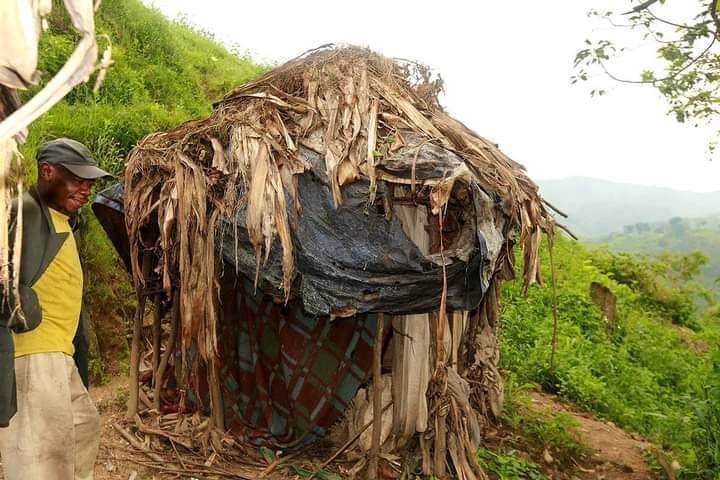
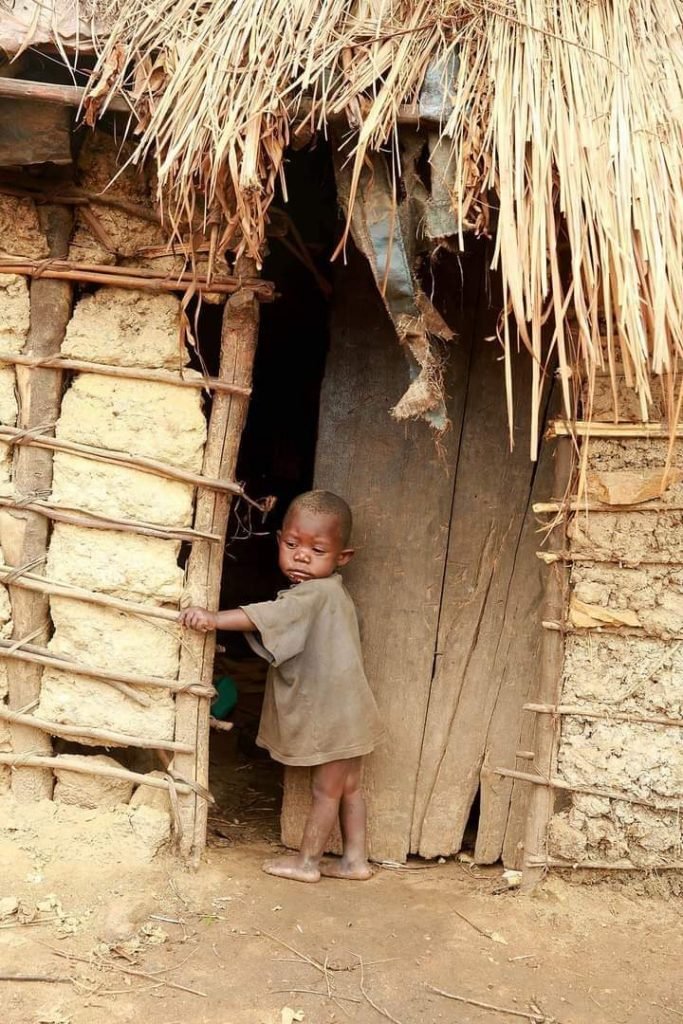
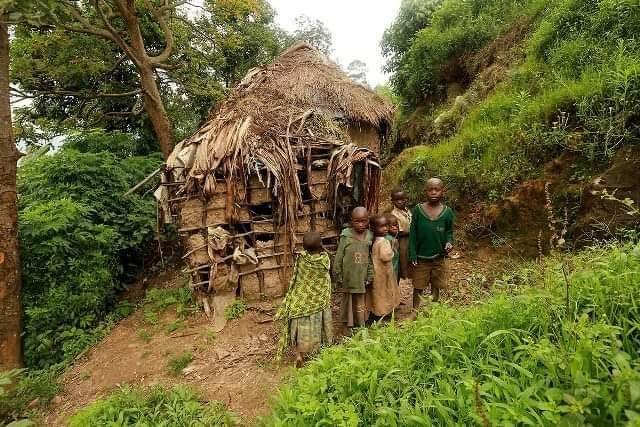
NEXT
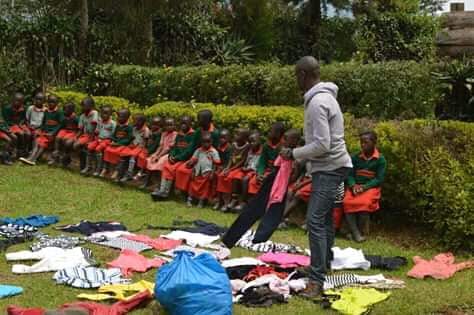
THE LIFE AND SAFETY OF CHILDREN KEY TO THE NATION
Human Rights is a Fundamental requirement for all Humans. The Children also have a right to clothing and LOSCO works with in her means to provide for those who do not have.
Its our Duty to ensure children are decent at all times.
CHILD PROTECTION IS EVERY ONE’S DUTY
A team of Local Leaders on Child Protection Committee being sensitised on the rights of Children and how their Advocacy strategies can be improved
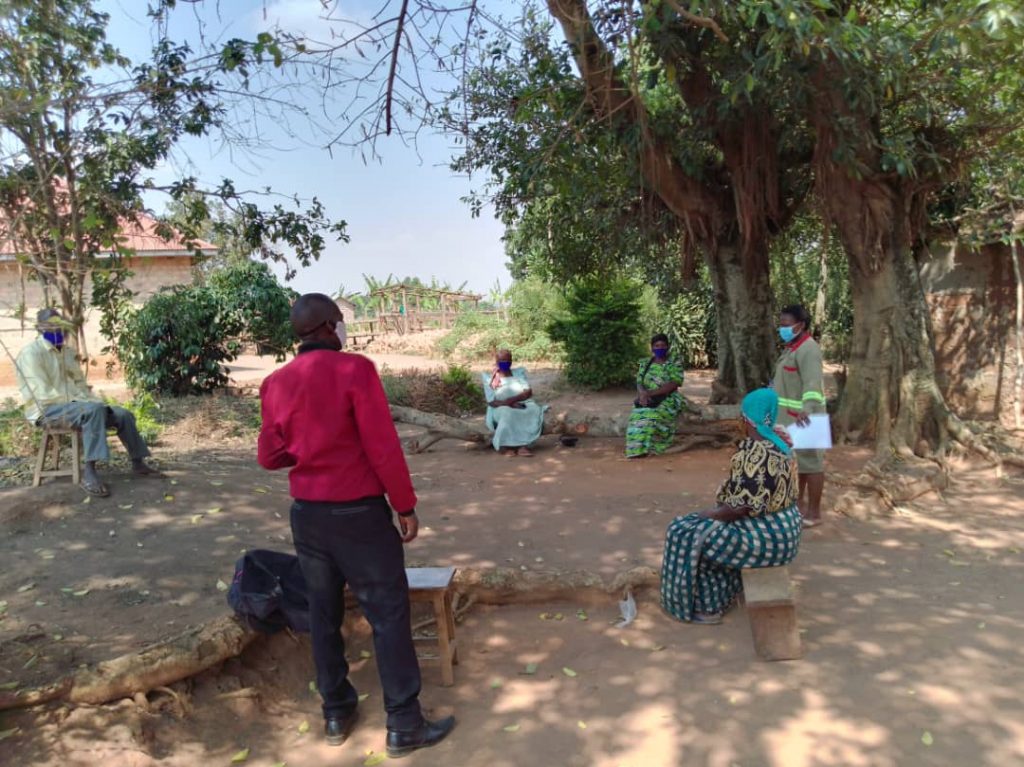
NEXT
LOCAL SUSTAINABLE COMMUNITIES ORGANISATION
(LOSCO)
For Immediate Release
STATEMENT ON THE BLANTANT ASSAULT OF A MEDICAL WORKER WHILST AUTHORITIES ENFORCED STRICT LOCKDOWN MEASURES.
(Kabale 9th July 2021) As we witness the unprecedented global lockdown around the world and in Uganda, LOSCO joins hands in solidarity with all peoples of the world and citizens of Uganda to fight the spread of Coronavirus that causes COVID-19 that has claimed so many lives. LOSCO will continue to participate in all public information campaigns against coronavirus as well as related preventive actions to ensure that we reach all Ugandans especially those that risk being left behind.
As we do this, Muhammad Byaruhanga, an orthopedist attached to Kabale Regional Referral Hospital is nursing wounds after being tortured by the escorts of Kabale Resident District Commissioner, Darius Nandinda. According to Mr. Byaruhanga, he was on his way back home from taking his Landlord for an urgent Medical attention at Kabale Regional Referral Hospital on the evening 4th July 2021, Sunday night towards 9:00pm. He said four men including the Driver occupied the RDCs Pick Up Double Cabin but the RDC himself was not there and he heard the Occupant in the Front seat commanding “FIMBO FIMBO” meaning “cane, cane” after he was intercepted along Bugongi Road near Revival Tabernacle Church.
According to Byaruhanga, on his way home, a double cabin pickup vehicle registration number UG 3314C that was being driven by a police officer he only identified as Julius emerged from the vehicle and intercepted him along Bugongi road in Lower Bugongi ward, Northern division, Kabale municipality and without asking for anything pounced on him and started beating him up causing injuries to his left ear and pain on his body.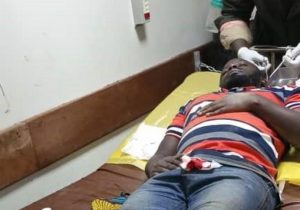
Byaruhanga says that he later went to file a complaint at Kabale police station where an officer told him that he should go and finish those issues with the RDC (who endeavored to call him that same night), arguing that police do not handle such matters bounced him at gunpoint. However, the RDC said he was not aware of the involvement of his escorts in the assault of the medical worker, saying in any case this is a police case. Byaruhanga further said these could be dragged along the political lines since he is a Brother to Hon. Sheik Kassim Kamugisha.
Byaruhanga told LOSCO that he is not the only Health worker falling victim to brutality by the same people that there are others he did not want to drag into this case who have come to him alleging the same.
Sophie Namasoppo, the Director Kabale Regional Referral Hospital said that unless something is done, health workers will lay down their tools to protest police brutality.
Reuben Mutabazi, Kabale District Internal Security Officer promised to investigate the incident, saying he had received information and gave a call to Byaruhanga that night about the same.
He (Byaruhanga) has so far met with the DPC ASP Keneddy Ssebagala and OC CID Joel on the same issue and claims there are deliberate efforts being made to change the case and according to him, he does not know why!
As Human Rights Defenders, we condemn such acts of Brutality in the strongest terms by the security forces against the Citizens of this country and we stand firm to advocate for Justice and Equity especially in times of crisis like these. Our interdependence as members of the human race behooves us to look after and look out for each other.
We therefore recommend that:
- The state should ensure that rights of all citizens are protected and upheld at all times.
- The perpetrators must be held accountable for their actions.
- The forces including the Police, Army, Private, and Secret Operatives operate within the confines of the Law and respect Human Rights bearing in mind that no one is above the Law.
- Authorities i.e the Police do whatever is necessary to conclusively investigate the circumstances under which Byaruhanga was assaulted by Agents of the State and other related cases and hold perpetrators accountable.
- The Office of the RDC should exercise restraint while enforcing observation of the strict COVID-19 Measures.
For More information please contact:
Pr. TAREMWA ALBERT, EXECUTIVE DIRECTOR +256772935100 localsustainco@gmail.com
